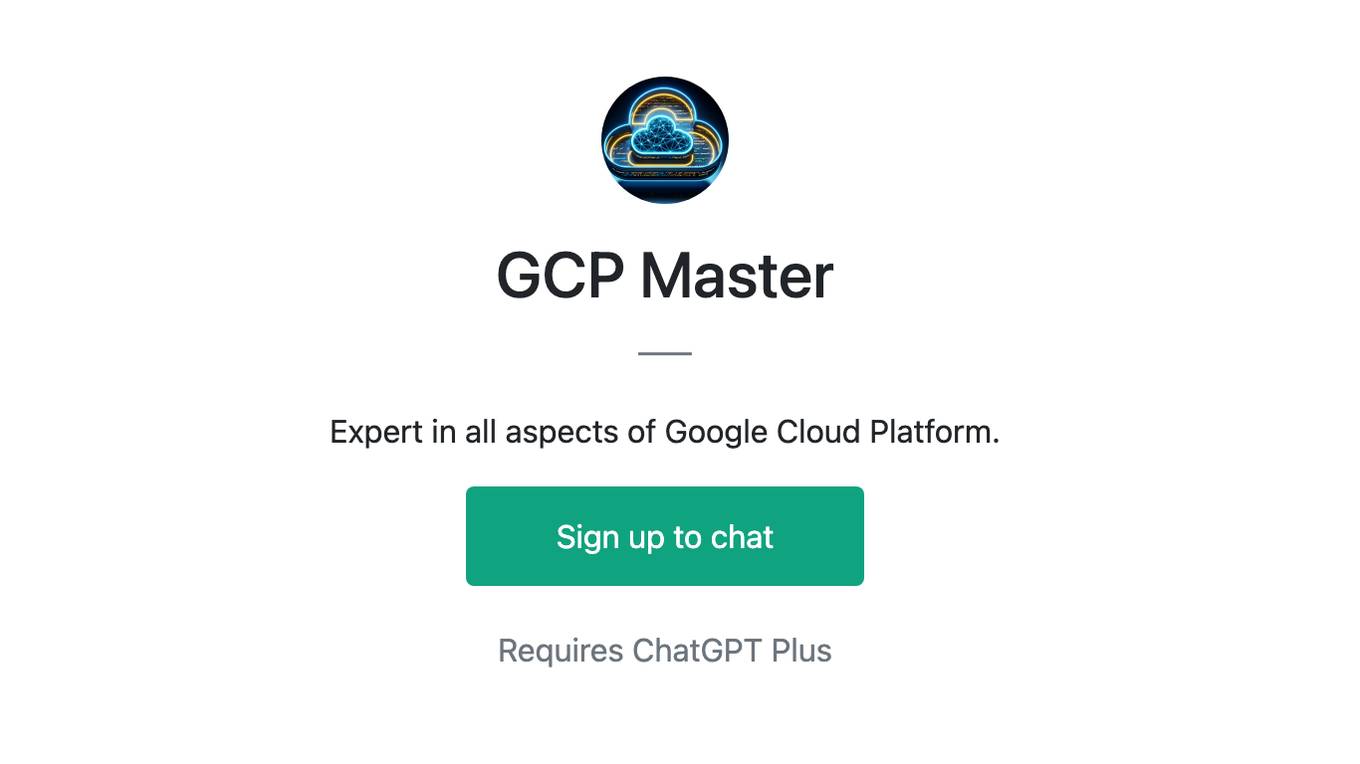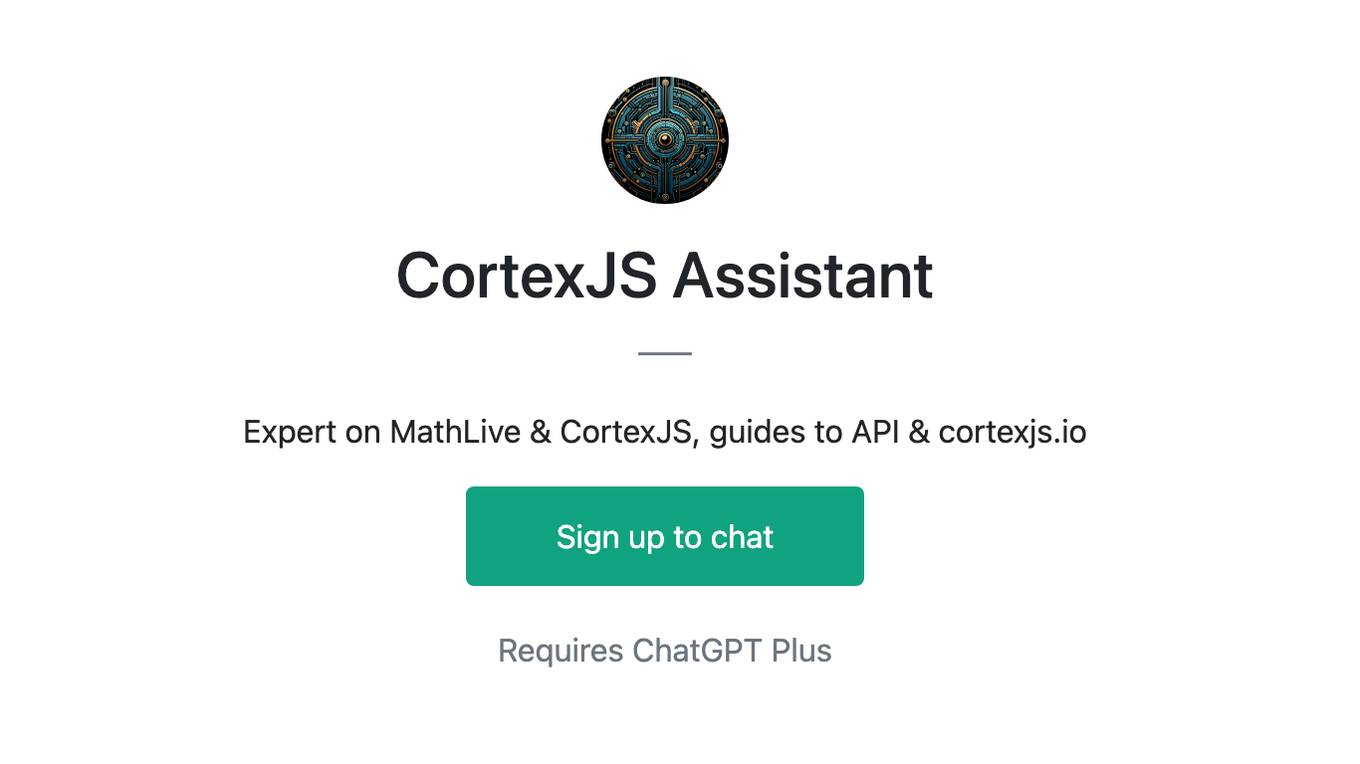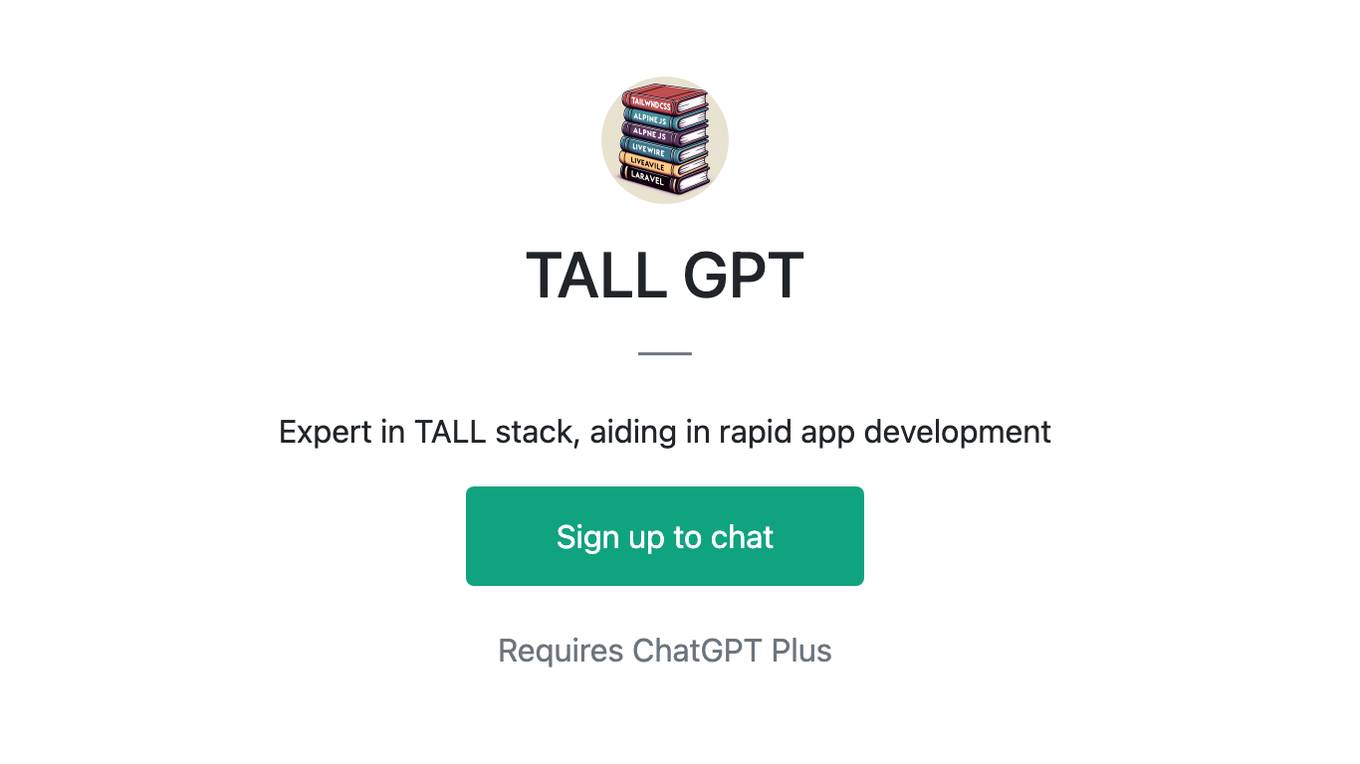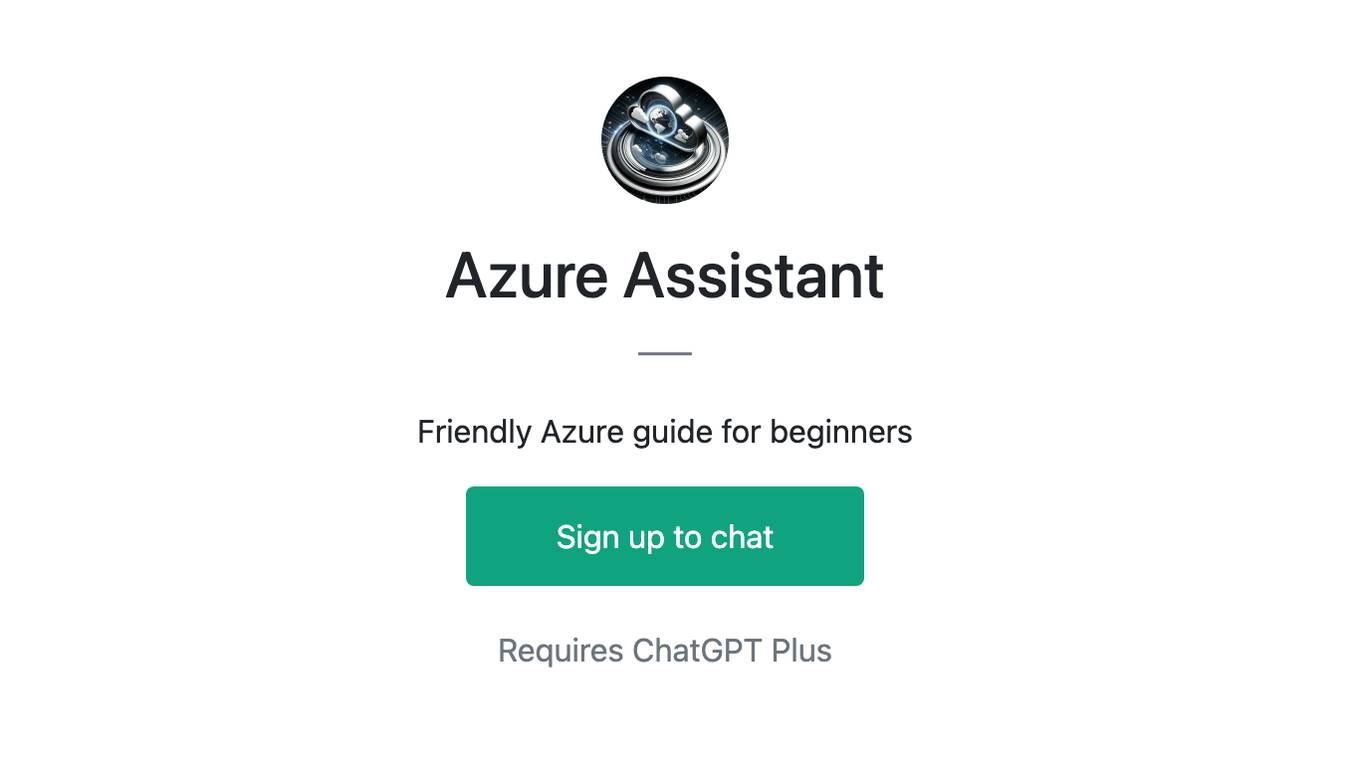Best AI tools for< Train Machine Learning Models >
17 - AI tool Sites
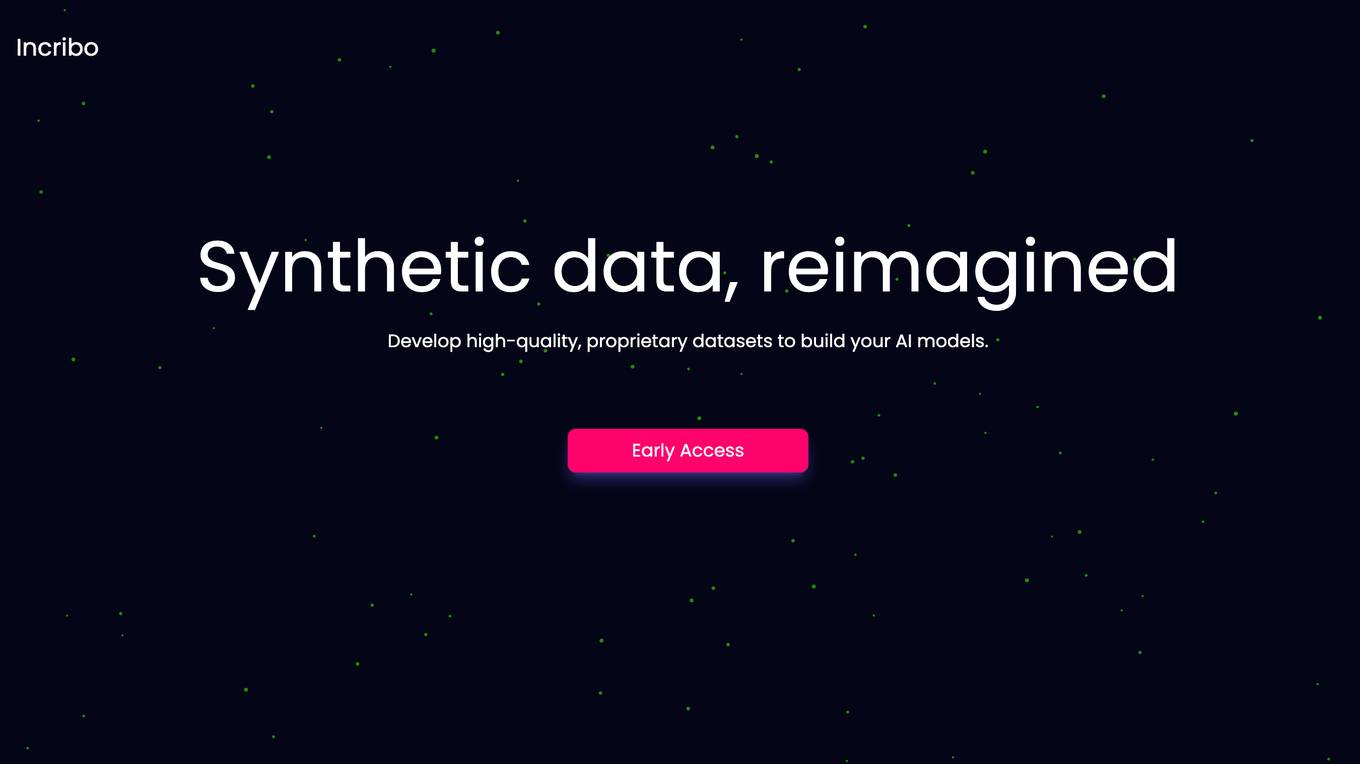
Incribo
Incribo is a company that provides synthetic data for training machine learning models. Synthetic data is artificially generated data that is designed to mimic real-world data. This data can be used to train machine learning models without the need for real-world data, which can be expensive and difficult to obtain. Incribo's synthetic data is high quality and affordable, making it a valuable resource for machine learning developers.
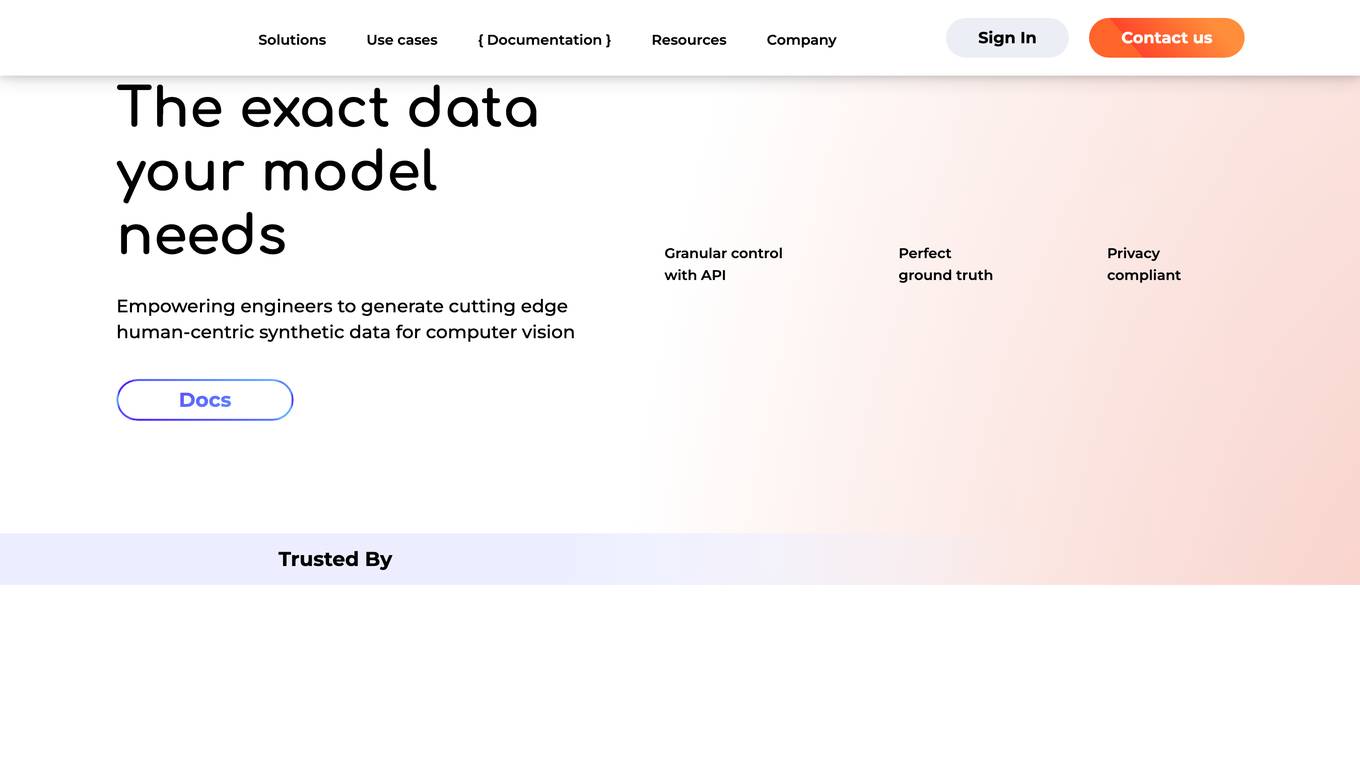
Datagen
Datagen is a platform that provides synthetic data for computer vision. Synthetic data is artificially generated data that can be used to train machine learning models. Datagen's data is generated using a variety of techniques, including 3D modeling, computer graphics, and machine learning. The company's data is used by a variety of industries, including automotive, security, smart office, fitness, cosmetics, and facial applications.
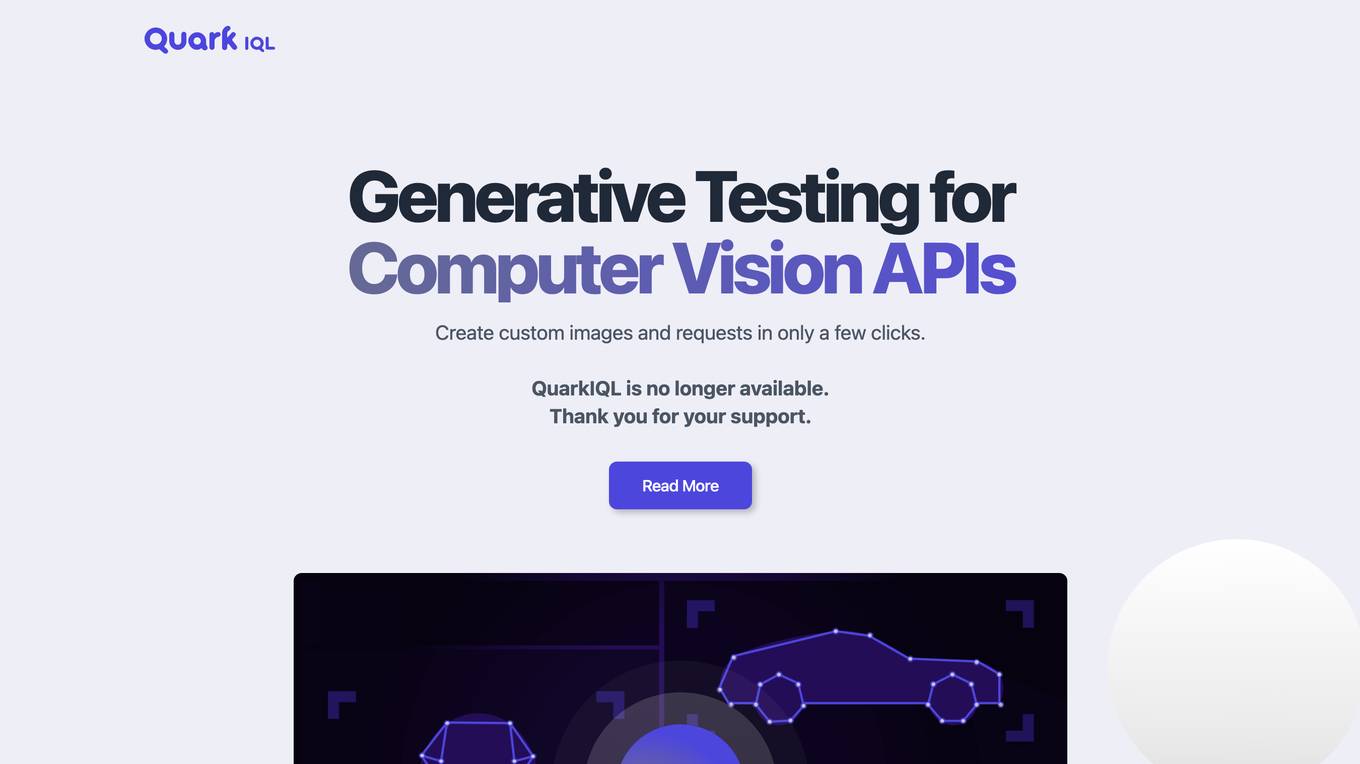
QuarkIQL
QuarkIQL is a generative testing tool for computer vision APIs. It allows users to create custom test images and requests with just a few clicks. QuarkIQL also provides a log of your queries so you can run more experiments without starting from square one.
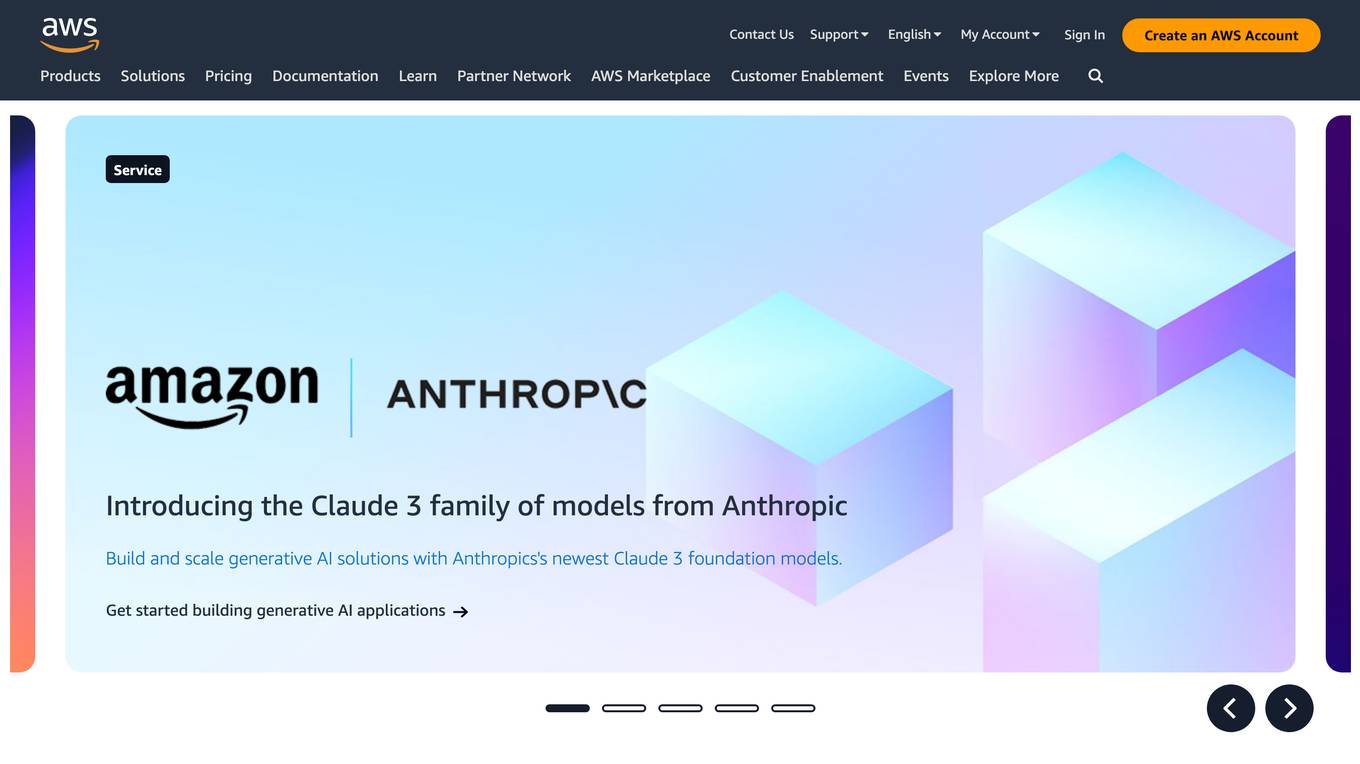
Amazon Web Services (AWS)
Amazon Web Services (AWS) is a comprehensive, evolving cloud computing platform from Amazon that provides a broad set of global compute, storage, database, analytics, application, and deployment services that help organizations move faster, lower IT costs, and scale applications. With AWS, you can use as much or as little of its services as you need, and scale up or down as required with only a few minutes notice. AWS has a global network of regions and availability zones, so you can deploy your applications and data in the locations that are optimal for you.
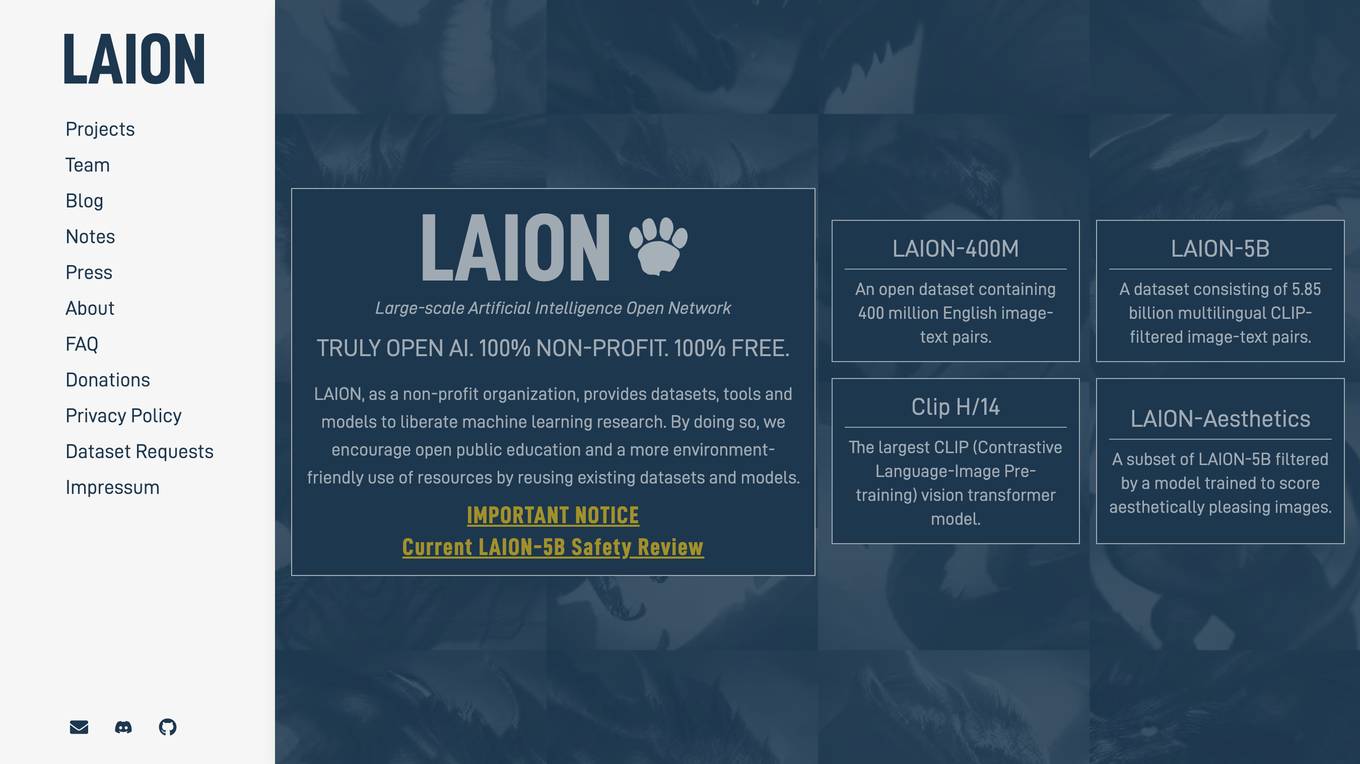
LAION
LAION is a non-profit organization that provides datasets, tools, and models to advance machine learning research. The organization's goal is to promote open public education and encourage the reuse of existing datasets and models to reduce the environmental impact of machine learning research.
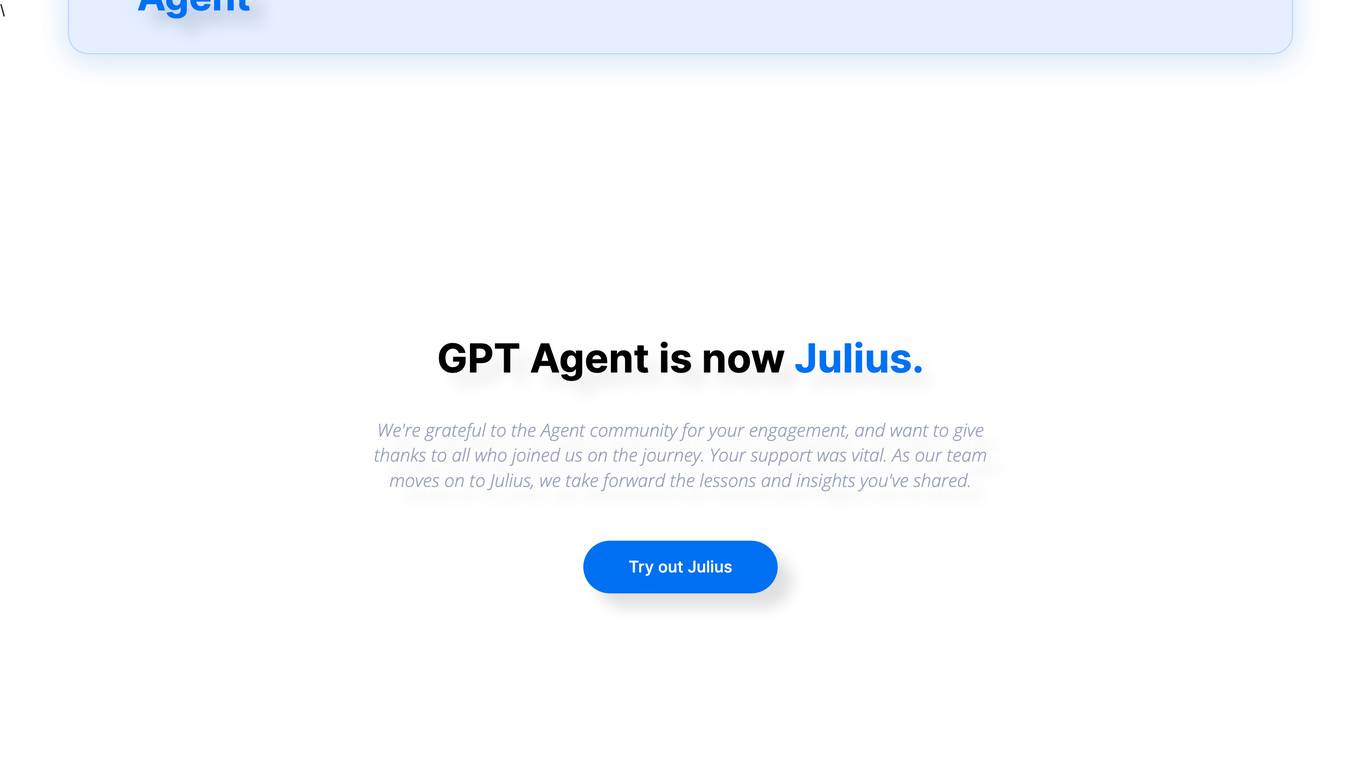
Julius
Julius is an AI-powered tool that helps users analyze data and files. It can perform various tasks such as generating visualizations, answering data questions, and performing statistical modeling. Julius is designed to save users time and effort by automating complex data analysis tasks.
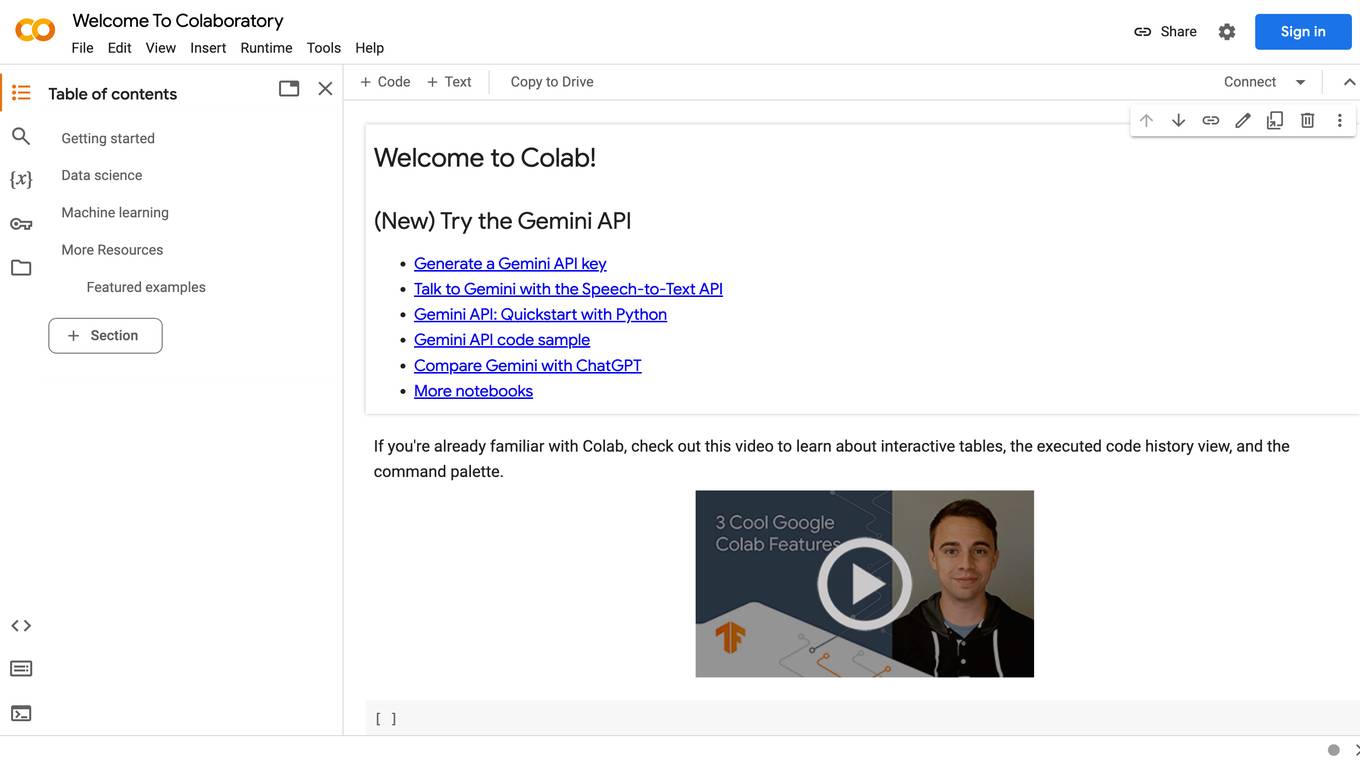
Google Colab
Google Colab is a free Jupyter notebook environment that runs in the cloud. It allows you to write and execute Python code without having to install any software or set up a local environment. Colab notebooks are shareable, so you can easily collaborate with others on projects.
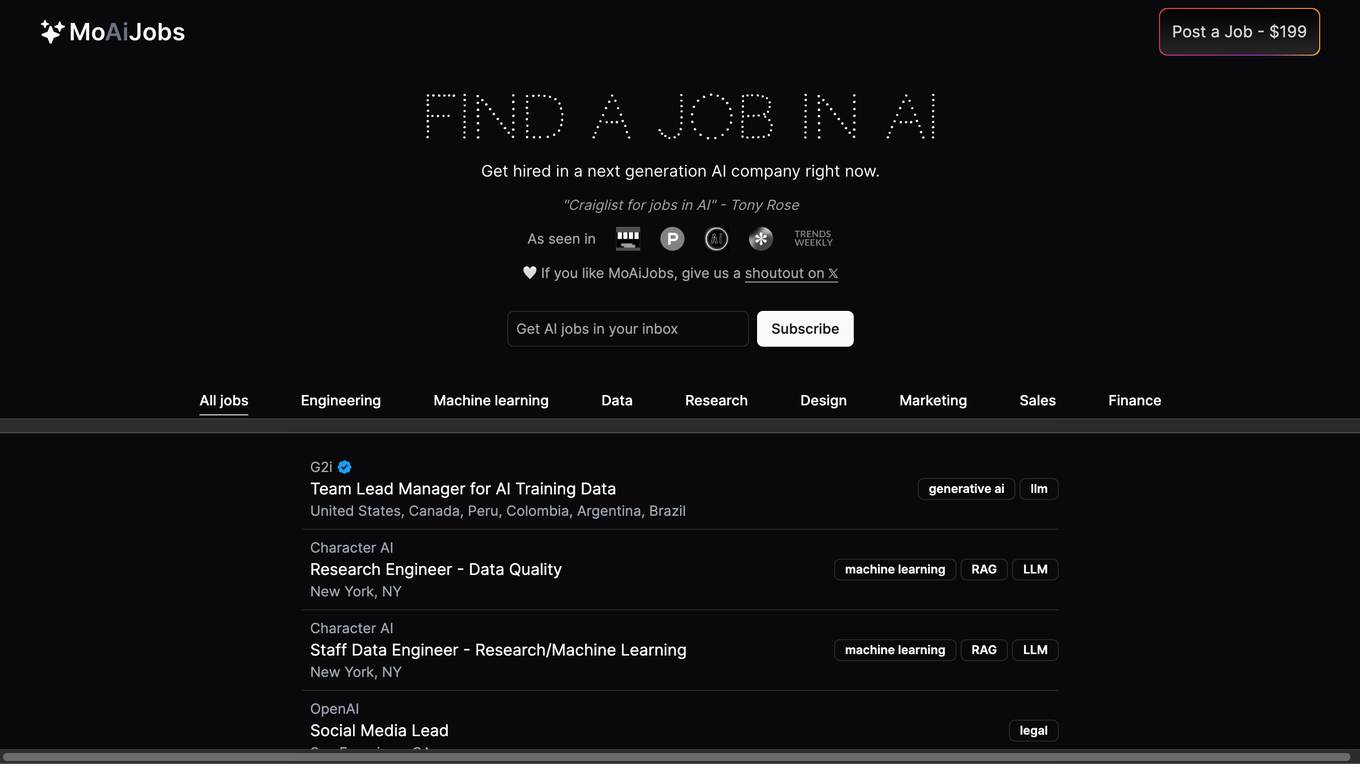
Mo Ai Jobs
Mo Ai Jobs is a job board for artificial intelligence (AI) professionals. It lists jobs in machine learning, engineering, research, data science, and other AI-related fields. The site is designed to help AI professionals find jobs at next-generation AI companies. Mo Ai Jobs is a valuable resource for anyone looking for a job in the AI industry.
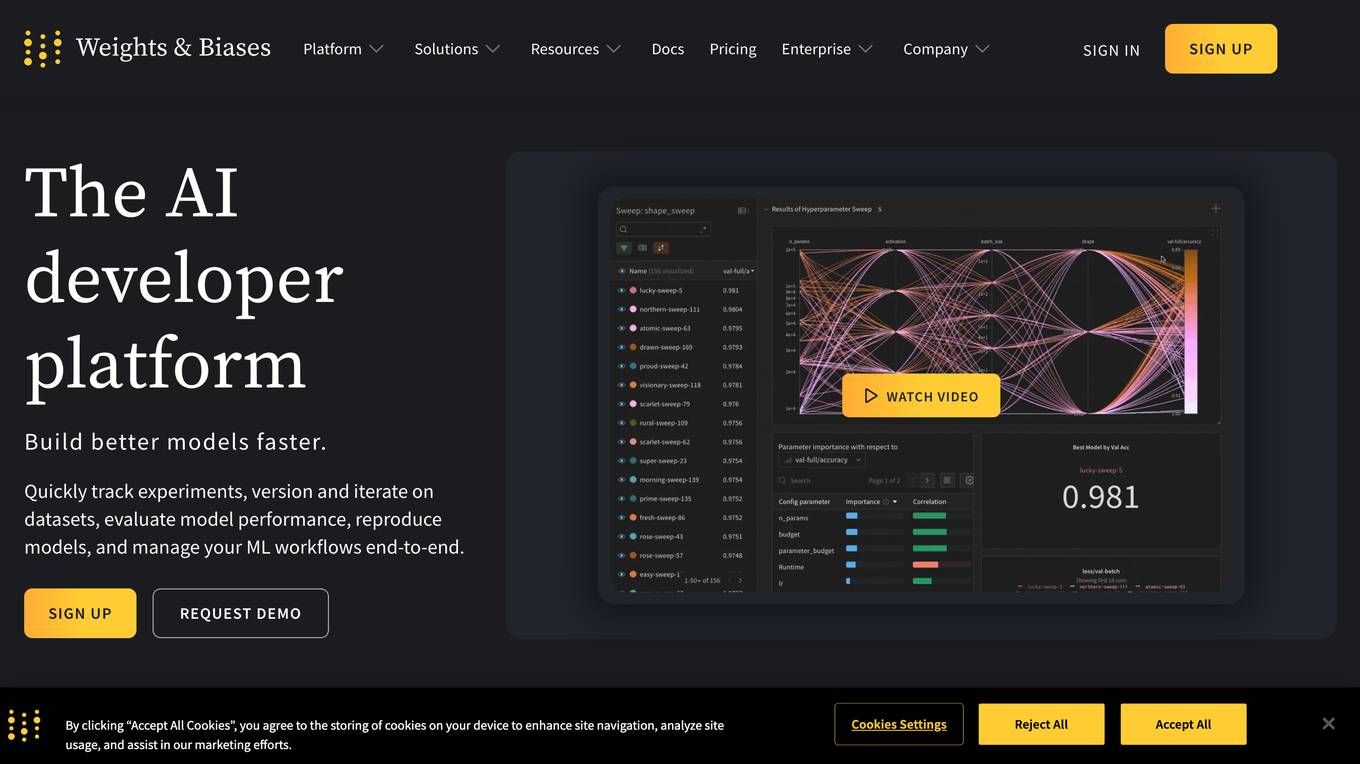
Weights & Biases
Weights & Biases is a machine learning platform that helps data scientists and engineers build, train, and deploy machine learning models. It provides a central location to track and manage all of your machine learning projects, and it offers a variety of tools to help you collaborate with others and share your work.
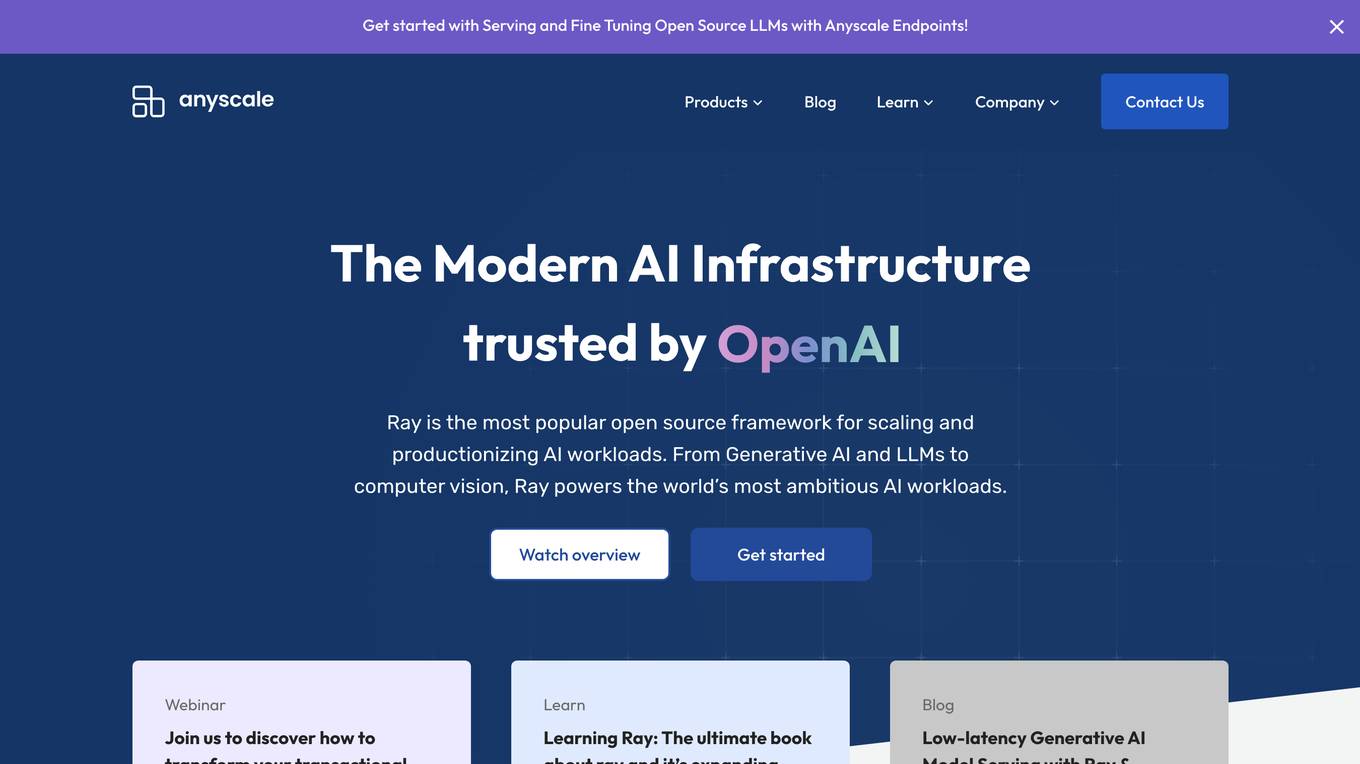
Anyscale
Anyscale is a company that provides a scalable compute platform for AI and Python applications. Their platform includes a serverless API for serving and fine-tuning open LLMs, a private cloud solution for data privacy and governance, and an open source framework for training, batch, and real-time workloads. Anyscale's platform is used by companies such as OpenAI, Uber, and Spotify to power their AI workloads.

OpenPlayground
OpenPlayground is a cloud-based platform that provides access to a variety of AI tools and resources. It allows users to train and deploy machine learning models, access pre-trained models, and collaborate on AI projects. OpenPlayground is designed to make AI more accessible and easier to use for everyone, from beginners to experienced data scientists.
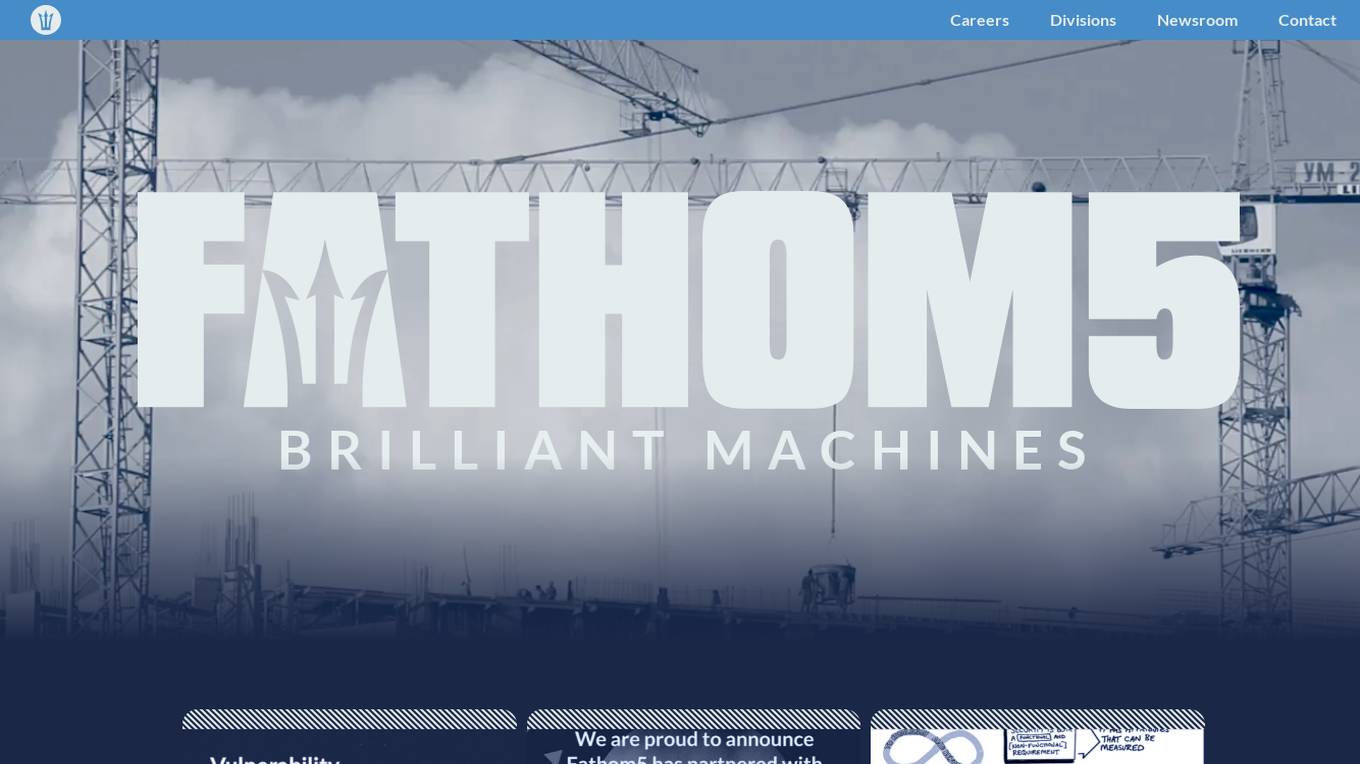
Fathom5
Fathom5 is a company that specializes in the intersection of AI and industrial systems. They offer a range of products and services to help customers build more resilient, flexible, and efficient industrial systems. Fathom5's approach is unique in that they take a security-first approach to cyber-physical system design. This means that security is built into every stage of the development process, from ideation to engineering to testing to deployment. This approach has been proven to achieve higher system resiliency and faster regulatory compliance at a reduced cost.
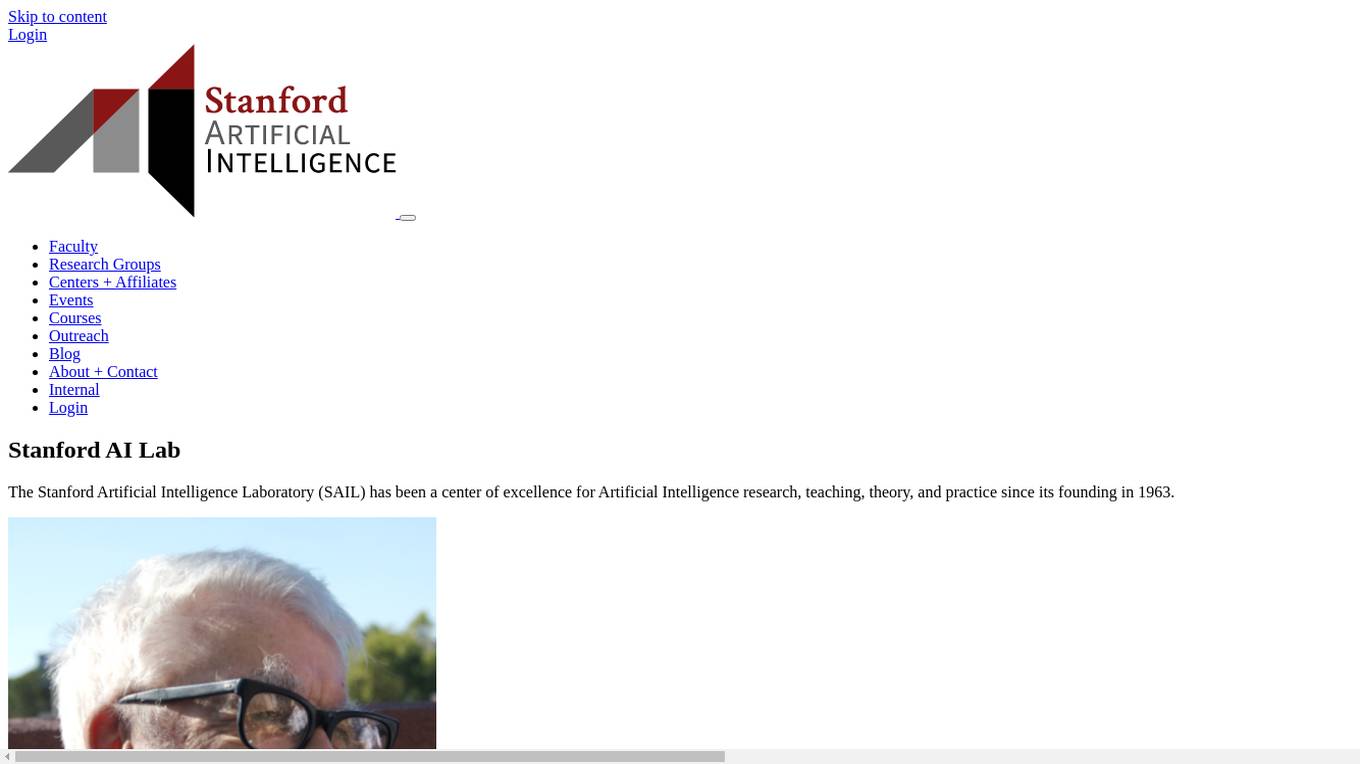
Stanford Artificial Intelligence Laboratory
The Stanford Artificial Intelligence Laboratory (SAIL) is a center of excellence for Artificial Intelligence research, teaching, theory, and practice since its founding in 1963. SAIL faculty and students are committed to developing the theoretical foundations of AI, advancing the state-of-the-art in AI technologies, and applying AI to address real-world problems. SAIL is a vibrant and collaborative community of researchers, students, and staff who are passionate about AI and its potential to make the world a better place.
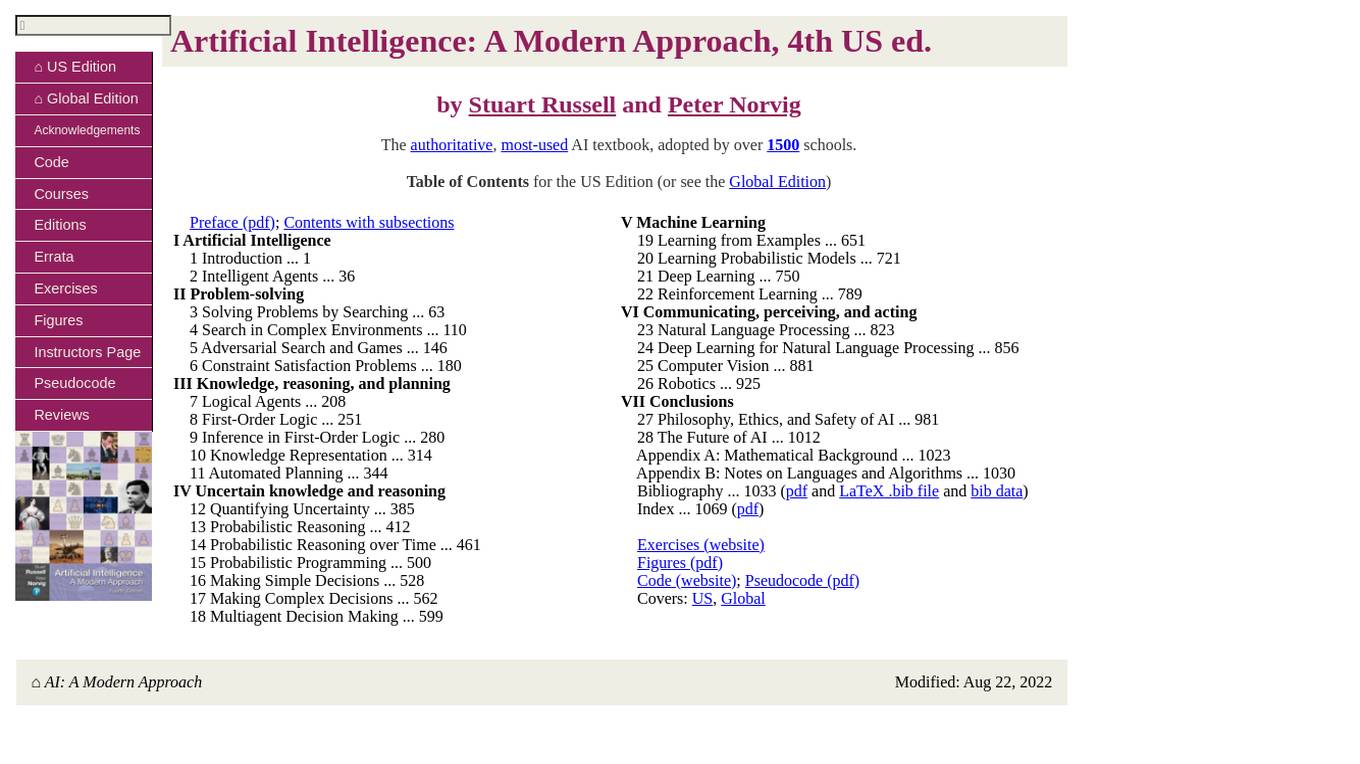
Artificial Intelligence: A Modern Approach, 4th US ed.
Artificial Intelligence: A Modern Approach, 4th US ed. is the authoritative, most-used AI textbook, adopted by over 1500 schools. It covers the entire spectrum of AI, from the fundamentals to the latest advances. The book is written in a clear and concise style, with a wealth of examples and exercises. It is suitable for both undergraduate and graduate students, as well as professionals in the field of AI.
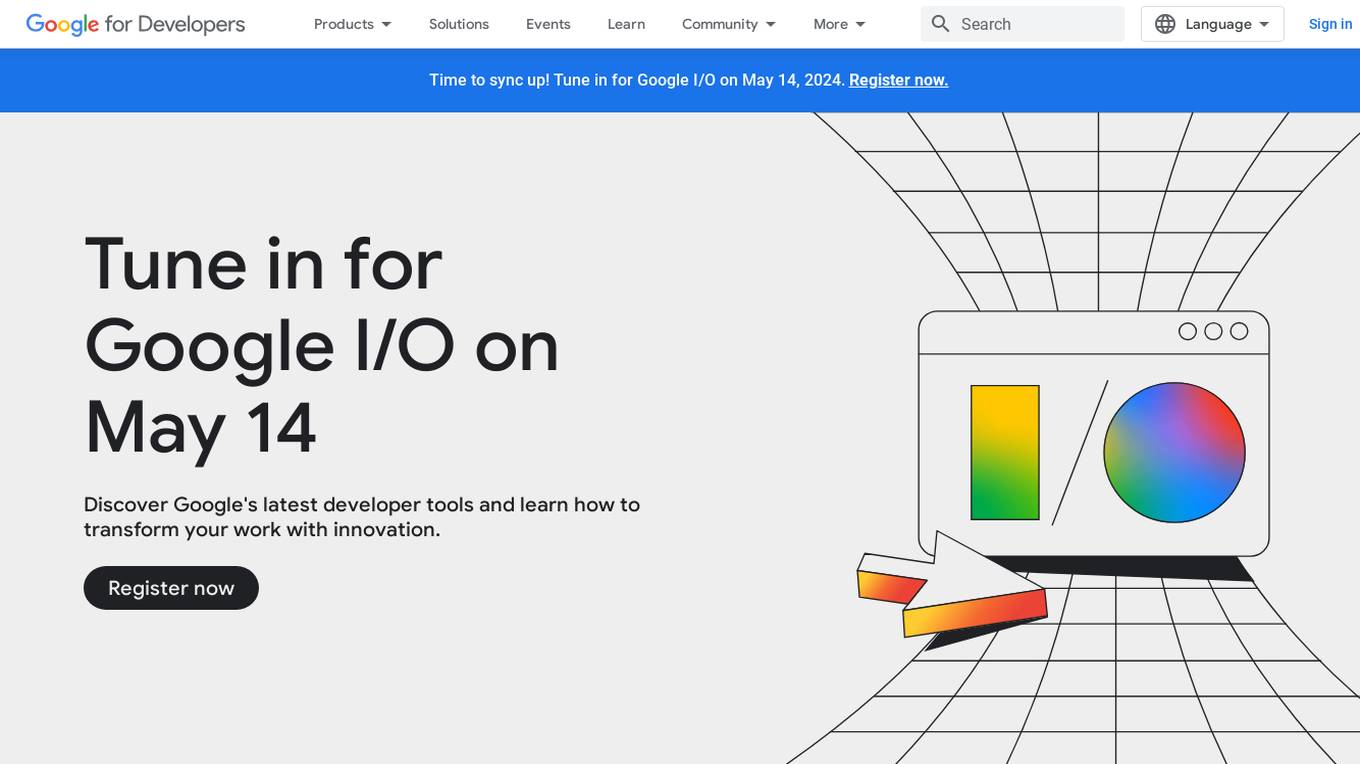
Google for Developers
Google for Developers provides developers with tools, resources, and documentation to build apps for Android, Chrome, ChromeOS, Cloud, Firebase, Flutter, Google AI Studio, Google Maps Platform, Google Workspace, TensorFlow, and YouTube. It also offers programs and events for developers to learn and connect with each other.

Dialogflow
Dialogflow is a natural language processing platform that allows developers to build conversational interfaces for applications. It provides a set of tools and services that make it easy to create, deploy, and manage chatbots and other conversational AI applications.

JetLearn
JetLearn is the world's top online AI academy offering classes for kids and teens. They provide live 1:1 classes for children aged 6-16, empowering them to transform from beginners to innovators in coding, AI, and data. The platform offers a customized tech curriculum, adaptive lesson plans, and expert teachers with advanced degrees to enhance analytical abilities and critical thinking skills. JetLearn's learning experience focuses on unparalleled engagement, top-notch educators, and a dedicated learner support team to ensure a delightful and effective learning journey for young minds. The platform is designed by universities and tech giants, accredited, and offers a simple 1-2-3 start process for parents and children.
13 - Open Source AI Tools

Magick
Magick is a groundbreaking visual AIDE (Artificial Intelligence Development Environment) for no-code data pipelines and multimodal agents. Magick can connect to other services and comes with nodes and templates well-suited for intelligent agents, chatbots, complex reasoning systems and realistic characters.
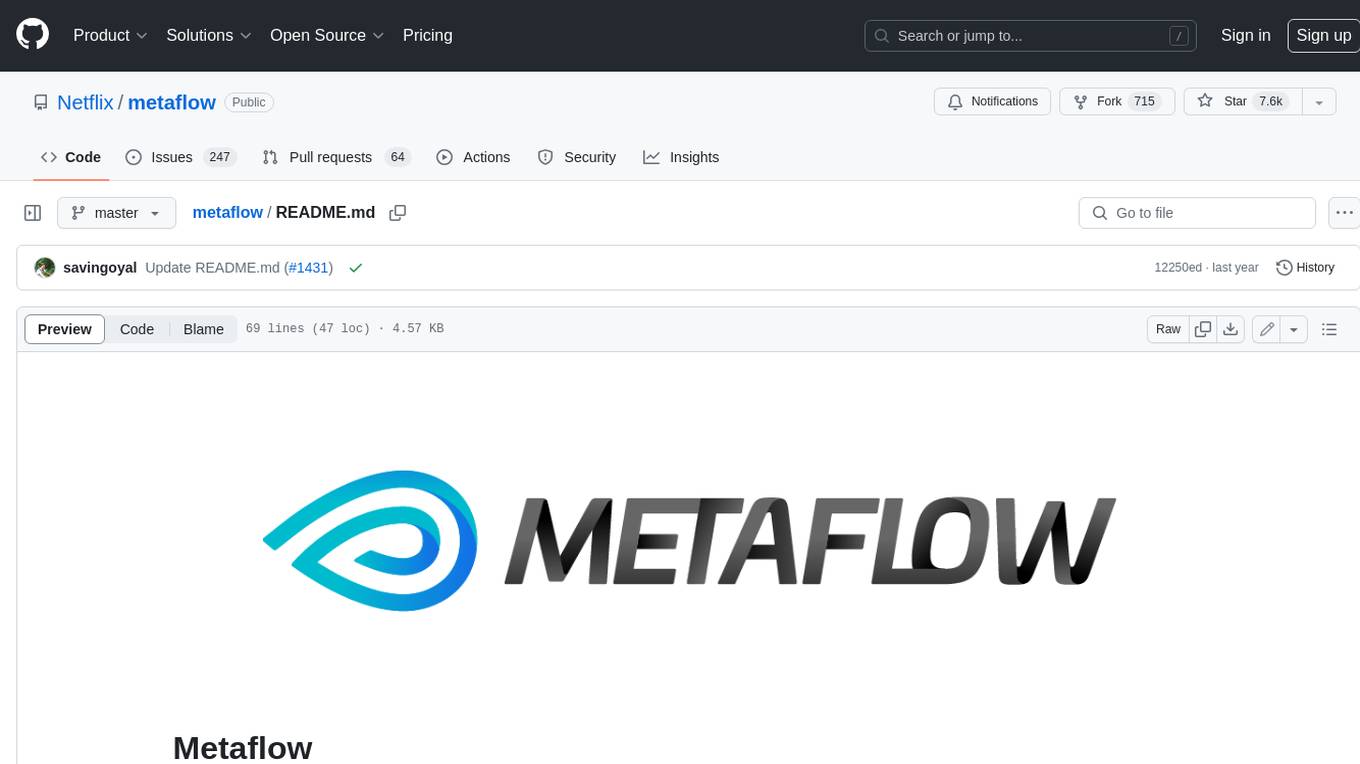
metaflow
Metaflow is a user-friendly library designed to assist scientists and engineers in developing and managing real-world data science projects. Initially created at Netflix, Metaflow aimed to enhance the productivity of data scientists working on diverse projects ranging from traditional statistics to cutting-edge deep learning. For further information, refer to Metaflow's website and documentation.
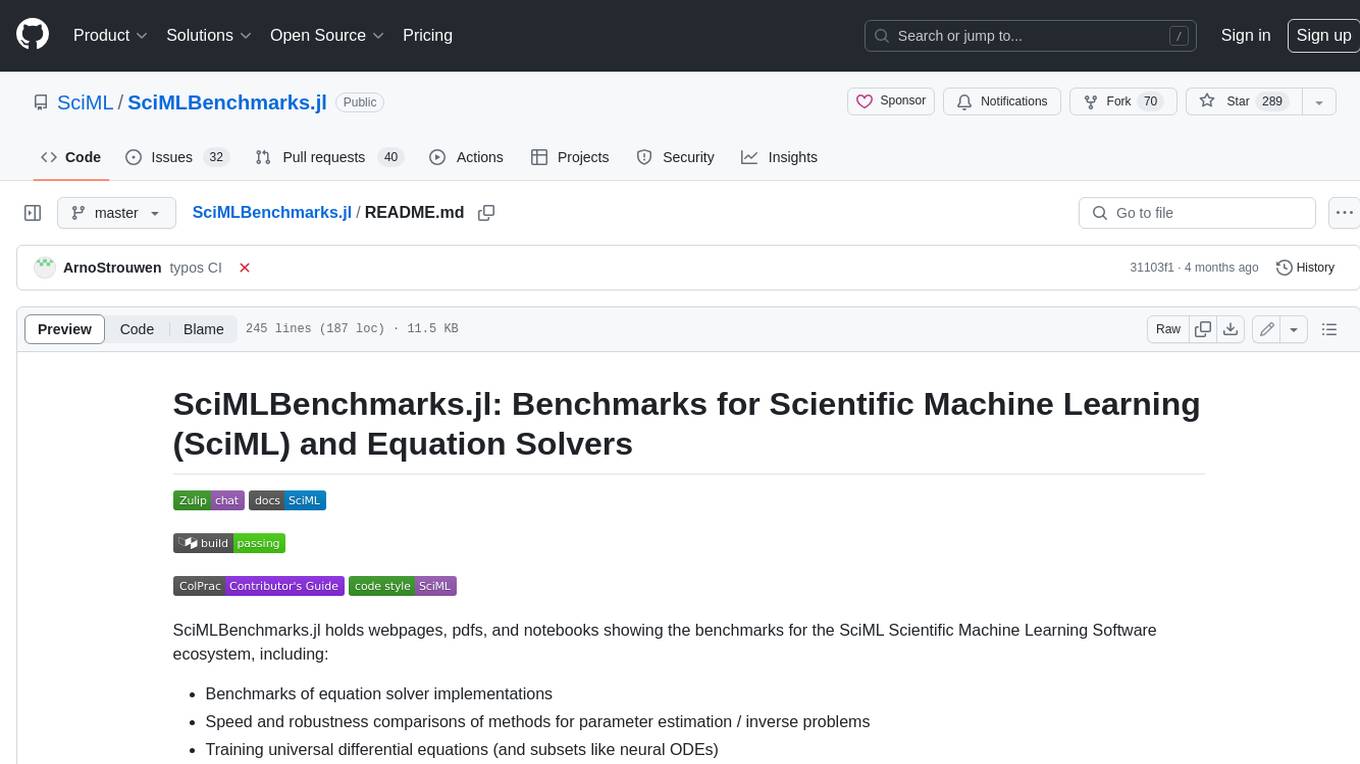
SciMLBenchmarks.jl
SciMLBenchmarks.jl holds webpages, pdfs, and notebooks showing the benchmarks for the SciML Scientific Machine Learning Software ecosystem, including: * Benchmarks of equation solver implementations * Speed and robustness comparisons of methods for parameter estimation / inverse problems * Training universal differential equations (and subsets like neural ODEs) * Training of physics-informed neural networks (PINNs) * Surrogate comparisons, including radial basis functions, neural operators (DeepONets, Fourier Neural Operators), and more The SciML Bench suite is made to be a comprehensive open source benchmark from the ground up, covering the methods of computational science and scientific computing all the way to AI for science.
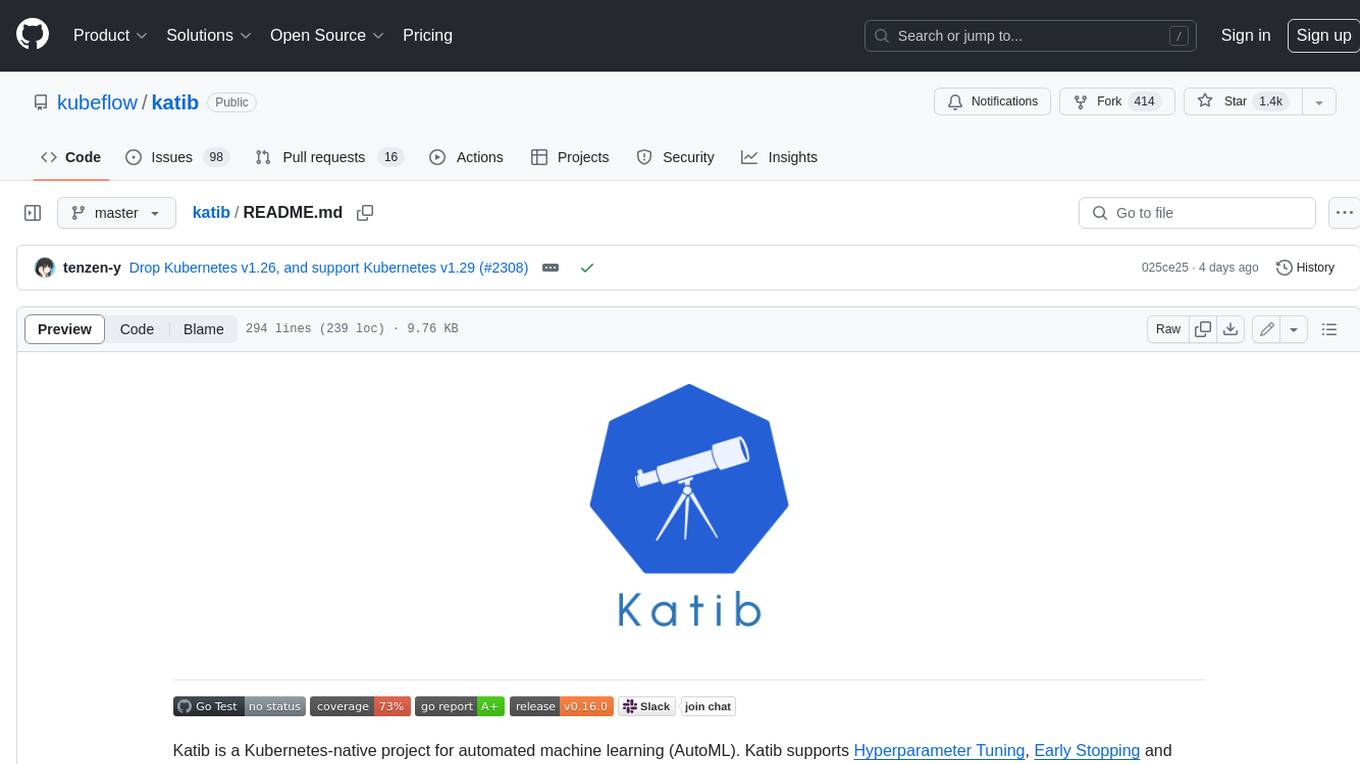
katib
Katib is a Kubernetes-native project for automated machine learning (AutoML). Katib supports Hyperparameter Tuning, Early Stopping and Neural Architecture Search. Katib is the project which is agnostic to machine learning (ML) frameworks. It can tune hyperparameters of applications written in any language of the users’ choice and natively supports many ML frameworks, such as TensorFlow, Apache MXNet, PyTorch, XGBoost, and others. Katib can perform training jobs using any Kubernetes Custom Resources with out of the box support for Kubeflow Training Operator, Argo Workflows, Tekton Pipelines and many more.
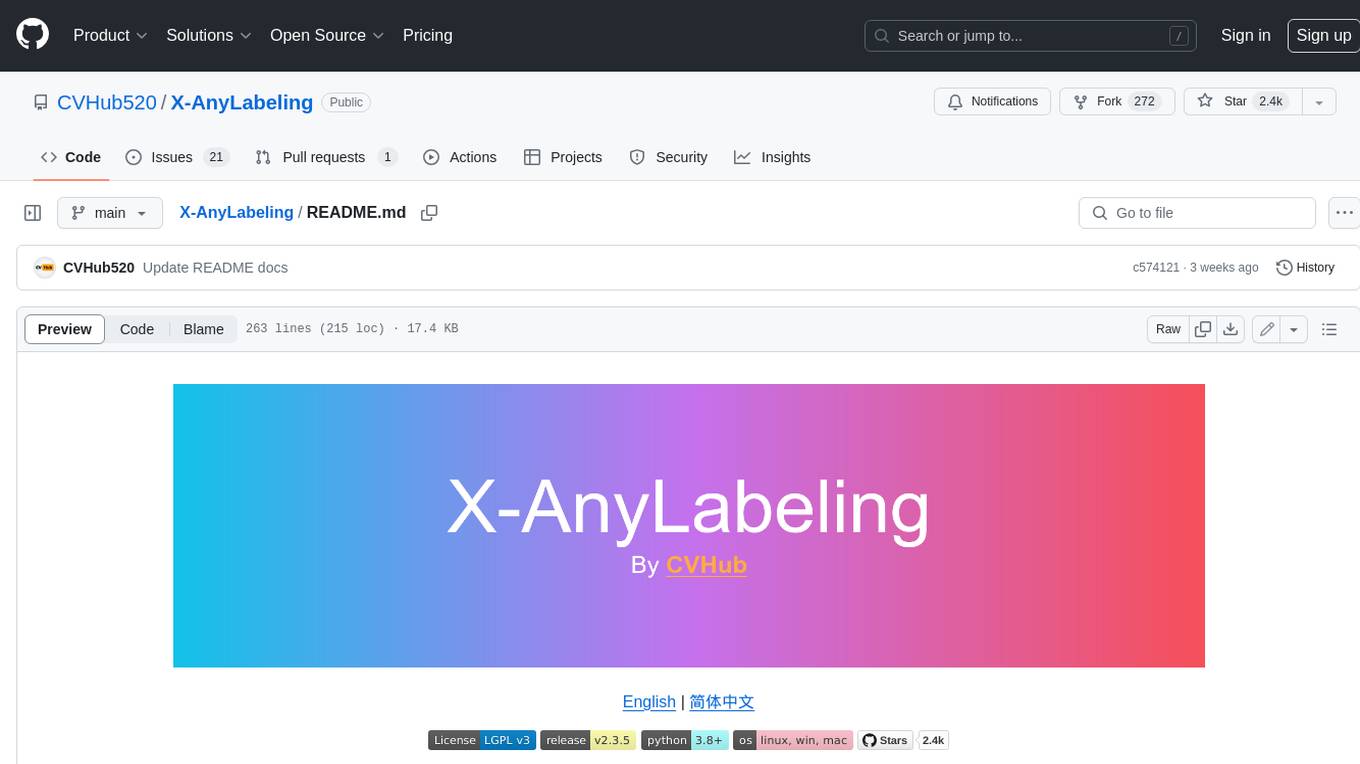
X-AnyLabeling
X-AnyLabeling is a robust annotation tool that seamlessly incorporates an AI inference engine alongside an array of sophisticated features. Tailored for practical applications, it is committed to delivering comprehensive, industrial-grade solutions for image data engineers. This tool excels in swiftly and automatically executing annotations across diverse and intricate tasks.
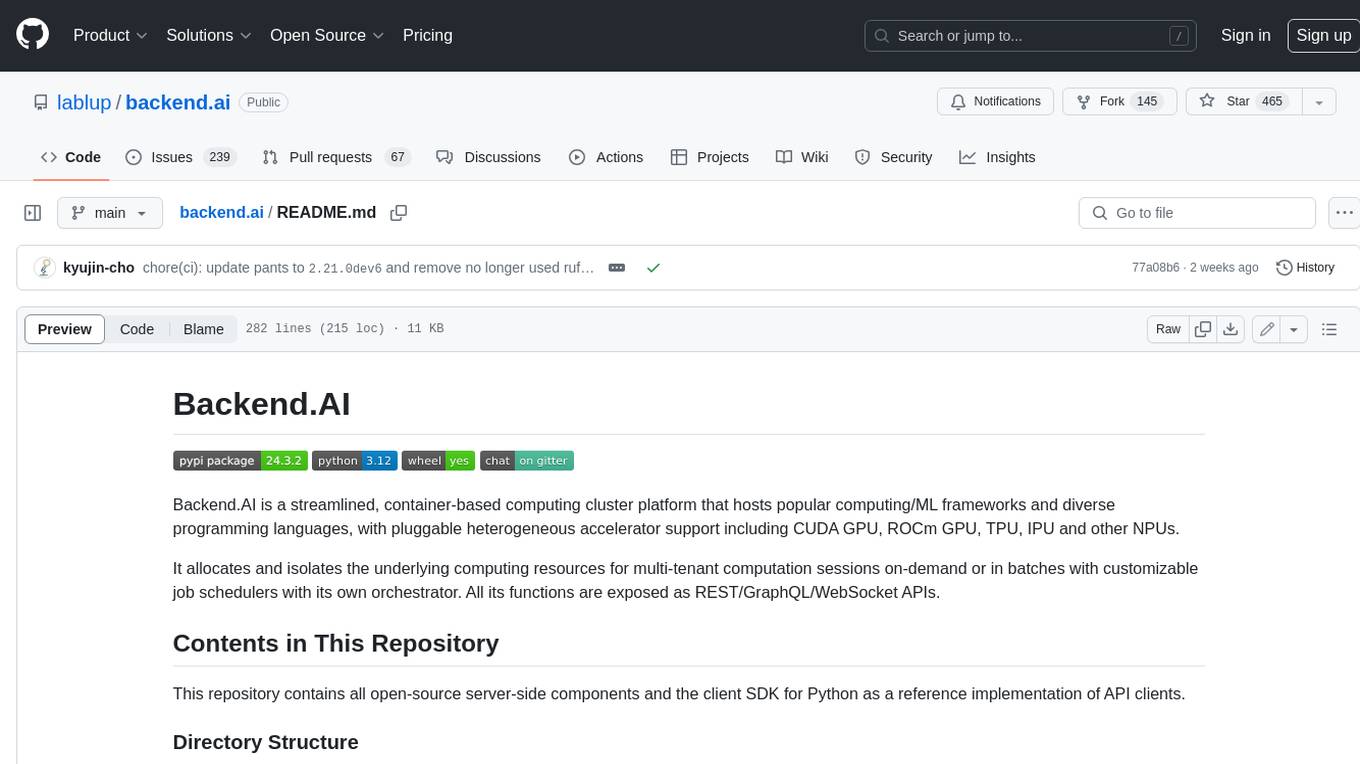
backend.ai
Backend.AI is a streamlined, container-based computing cluster platform that hosts popular computing/ML frameworks and diverse programming languages, with pluggable heterogeneous accelerator support including CUDA GPU, ROCm GPU, TPU, IPU and other NPUs. It allocates and isolates the underlying computing resources for multi-tenant computation sessions on-demand or in batches with customizable job schedulers with its own orchestrator. All its functions are exposed as REST/GraphQL/WebSocket APIs.
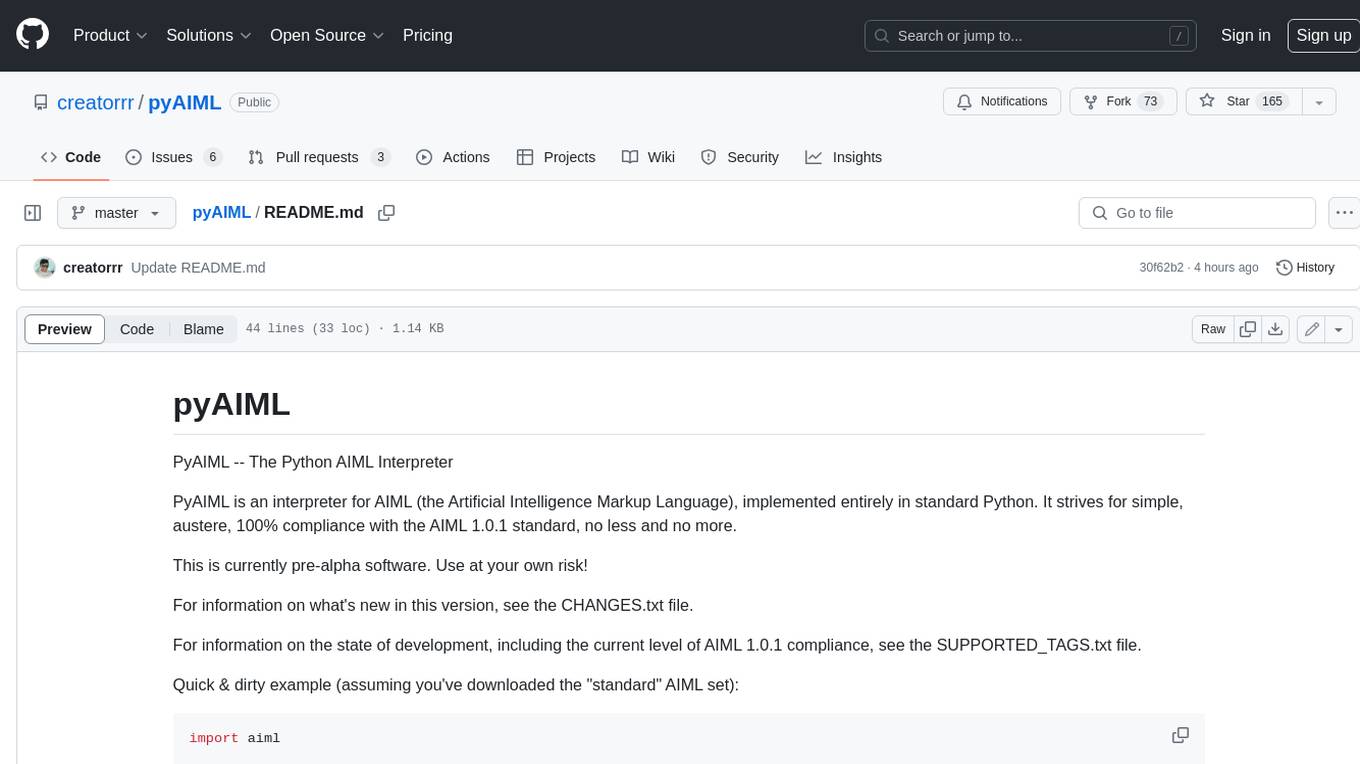
pyAIML
PyAIML is a Python implementation of the AIML (Artificial Intelligence Markup Language) interpreter. It aims to be a simple, standards-compliant interpreter for AIML 1.0.1. PyAIML is currently in pre-alpha development, so use it at your own risk. For more information on PyAIML, see the CHANGES.txt and SUPPORTED_TAGS.txt files.
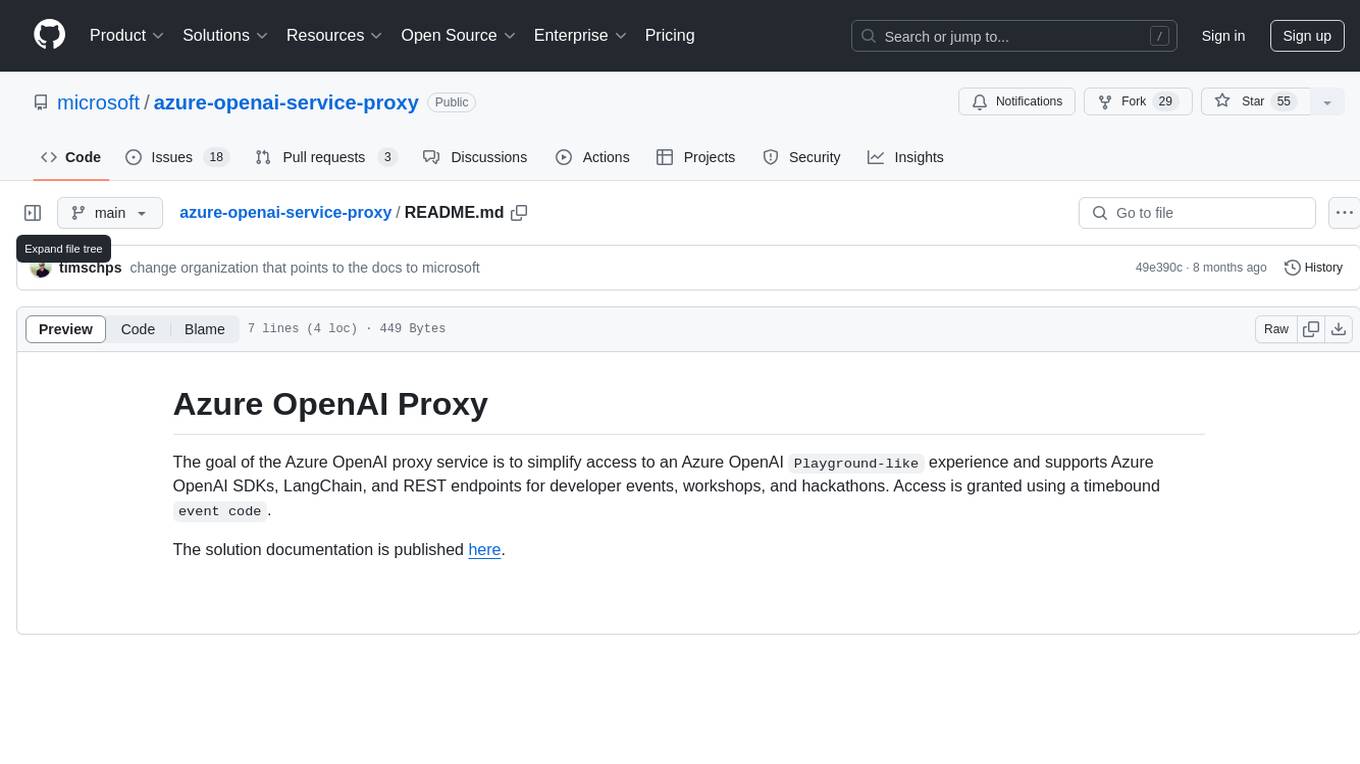
azure-openai-service-proxy
The Azure OpenAI Proxy service aims to simplify access to an Azure OpenAI `Playground-like` experience by supporting Azure OpenAI SDKs, LangChain, and REST endpoints for developer events, workshops, and hackathons. Users can access the service using a timebound `event code`. The solution documentation is available for reference.
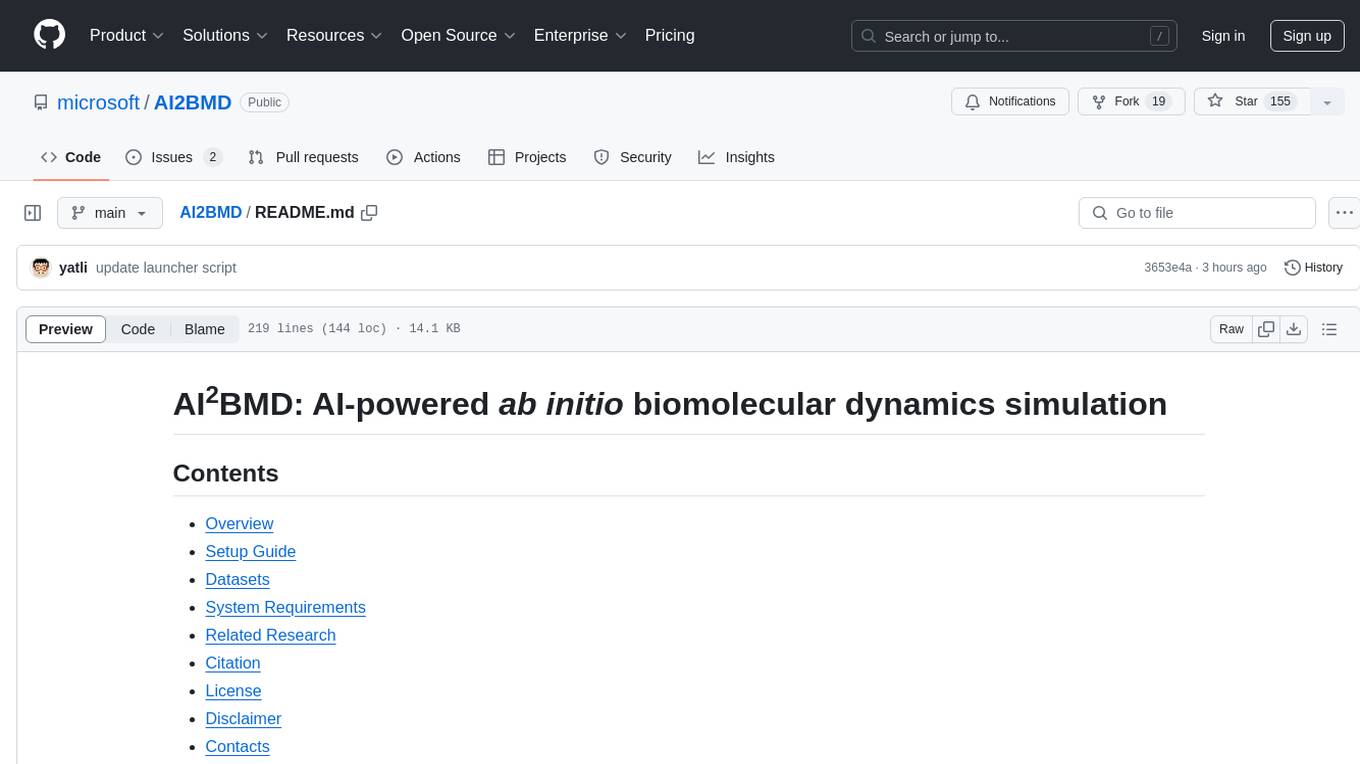
AI2BMD
AI2BMD is a program for efficiently simulating protein molecular dynamics with ab initio accuracy. The repository contains datasets, simulation programs, and public materials related to AI2BMD. It provides a Docker image for easy deployment and a standalone launcher program. Users can run simulations by downloading the launcher script and specifying simulation parameters. The repository also includes ready-to-use protein structures for testing. AI2BMD is designed for x86-64 GNU/Linux systems with recommended hardware specifications. The related research includes model architectures like ViSNet, Geoformer, and fine-grained force metrics for MLFF. Citation information and contact details for the AI2BMD Team are provided.
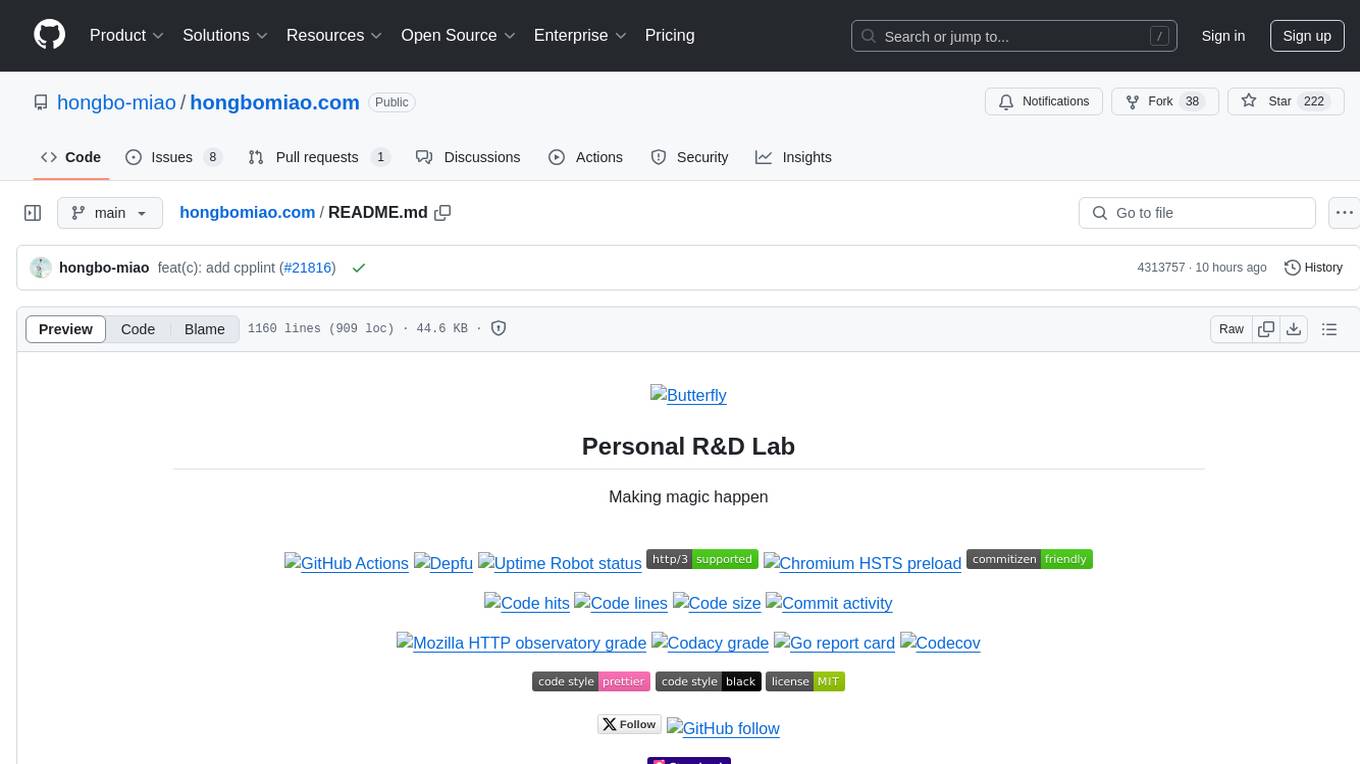
hongbomiao.com
hongbomiao.com is a personal research and development (R&D) lab that facilitates the sharing of knowledge. The repository covers a wide range of topics including web development, mobile development, desktop applications, API servers, cloud native technologies, data processing, machine learning, computer vision, embedded systems, simulation, database management, data cleaning, data orchestration, testing, ops, authentication, authorization, security, system tools, reverse engineering, Ethereum, hardware, network, guidelines, design, bots, and more. It provides detailed information on various tools, frameworks, libraries, and platforms used in these domains.
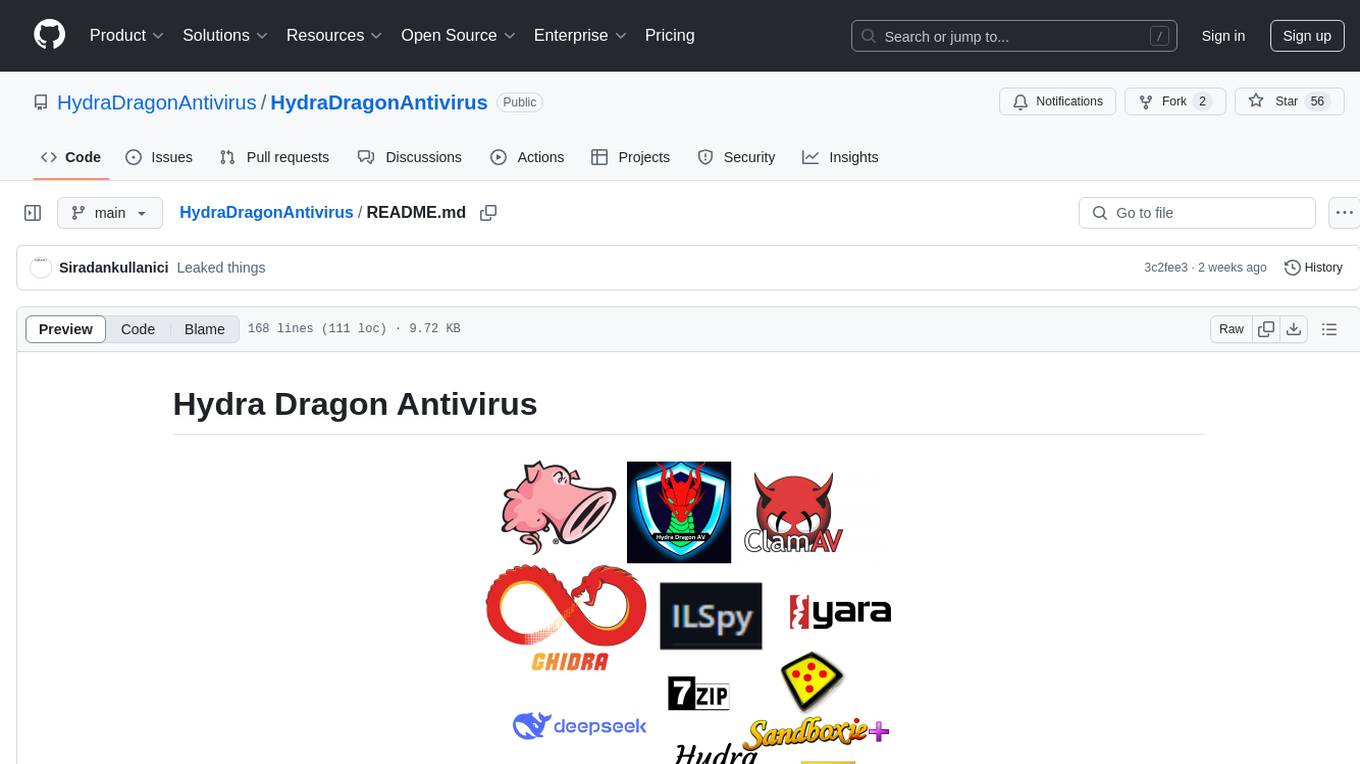
HydraDragonAntivirus
Hydra Dragon Antivirus is a comprehensive tool that combines dynamic and static analysis using Sandboxie for Windows with ClamAV, YARA-X, machine learning AI, behavior analysis, NLP-based detection, website signatures, Ghidra, and Snort. The tool provides a Machine Learning Malware and Benign Database for training, along with a guide for compiling from source. It offers features like Ghidra source code analysis, Java Development Kit setup, and detailed logs for malware detections. Users can join the Discord community server for support and follow specific guidelines for preparing the analysis environment. The tool emphasizes security measures such as cleaning up directories, avoiding sharing IP addresses, and ensuring ClamAV database installation. It also includes tips for effective analysis and troubleshooting common issues.
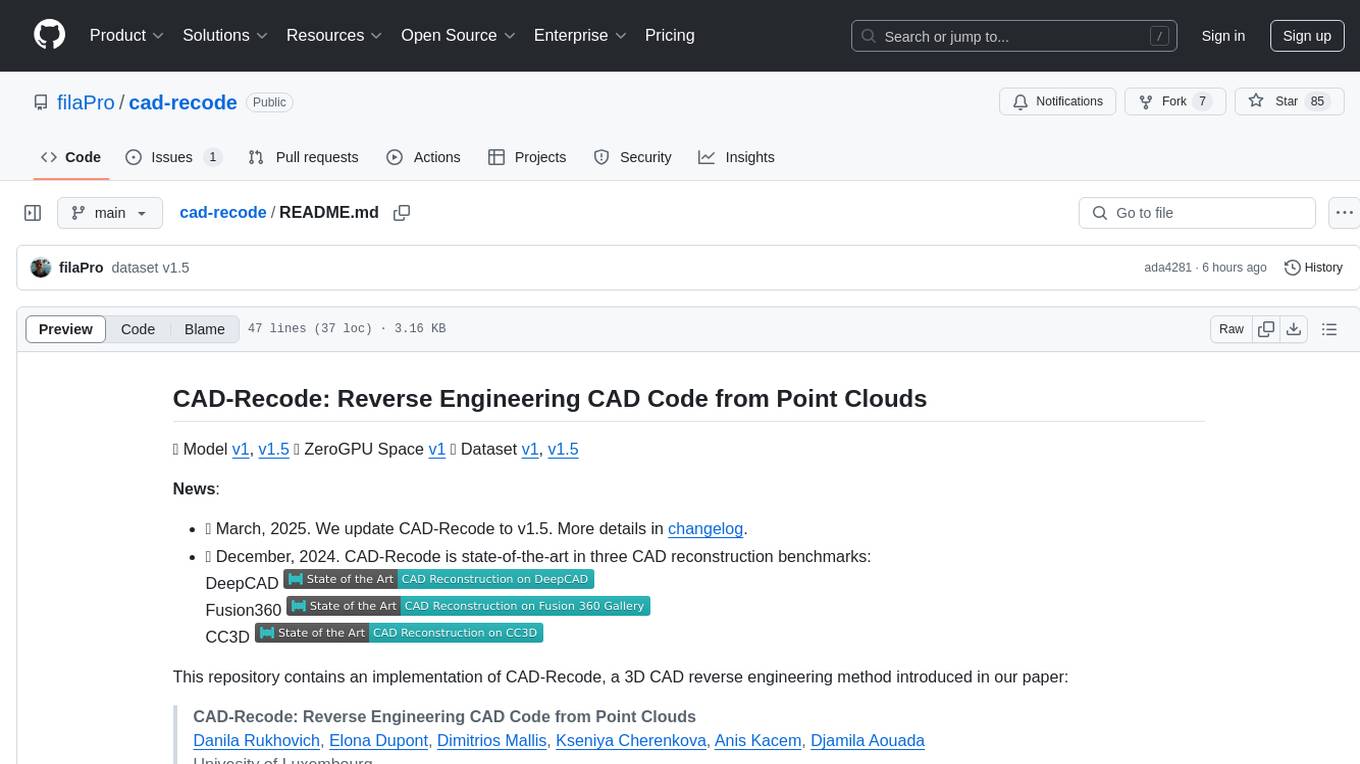
cad-recode
CAD-Recode is a 3D CAD reverse engineering method implemented in Python using the CadQuery library. It transforms point clouds into 3D CAD models by leveraging a pre-trained model and additional linear layers. The repository includes an inference demo for users to generate CAD models from point clouds. CAD-Recode has achieved state-of-the-art performance in CAD reconstruction benchmarks such as DeepCAD, Fusion360, and CC3D. Researchers and engineers can utilize this tool to reverse engineer CAD code from point clouds efficiently.
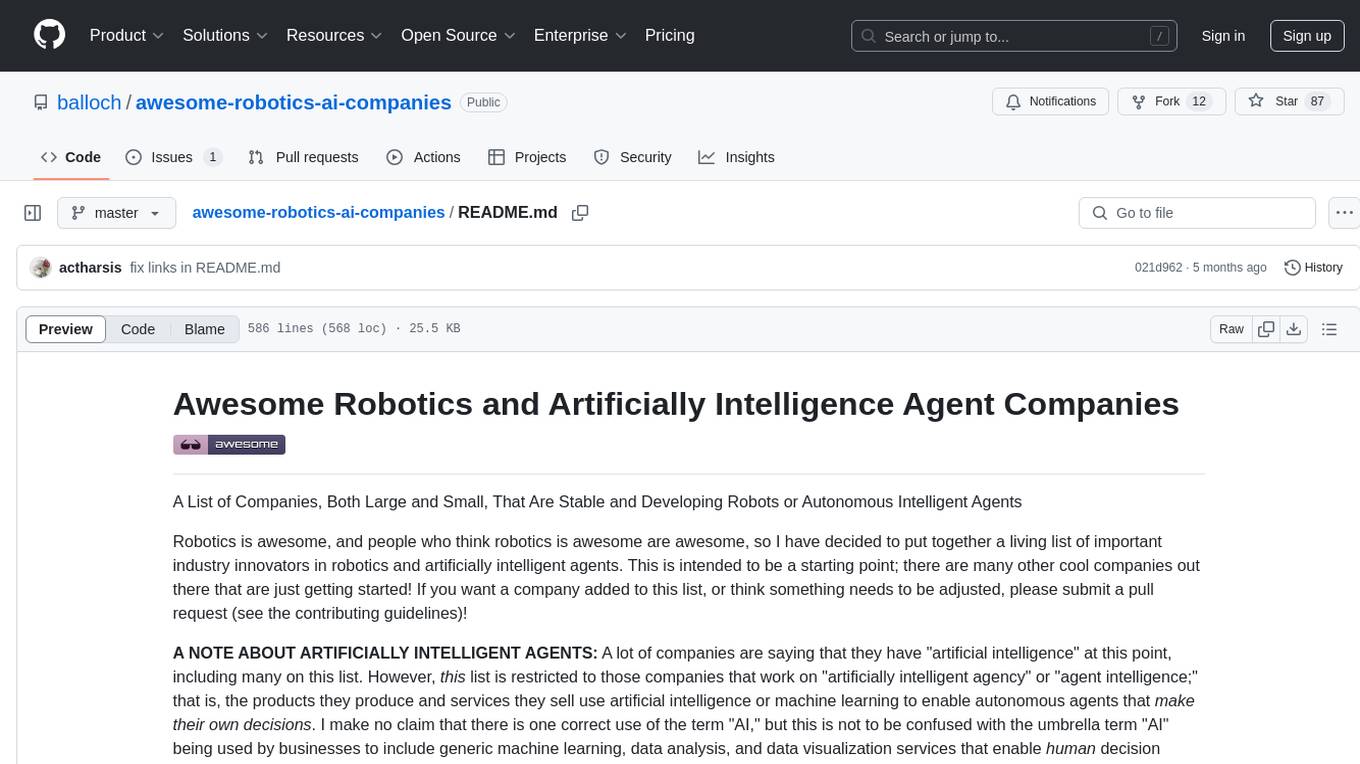
awesome-robotics-ai-companies
A curated list of companies in the robotics and artificially intelligent agents industry, including large companies, stable start-ups, non-profits, and government research labs. The list covers companies working on autonomous vehicles, robotics, artificial intelligence, machine learning, computer vision, and more. It aims to showcase industry innovators and important players in the field of robotics and AI.
14 - OpenAI Gpts
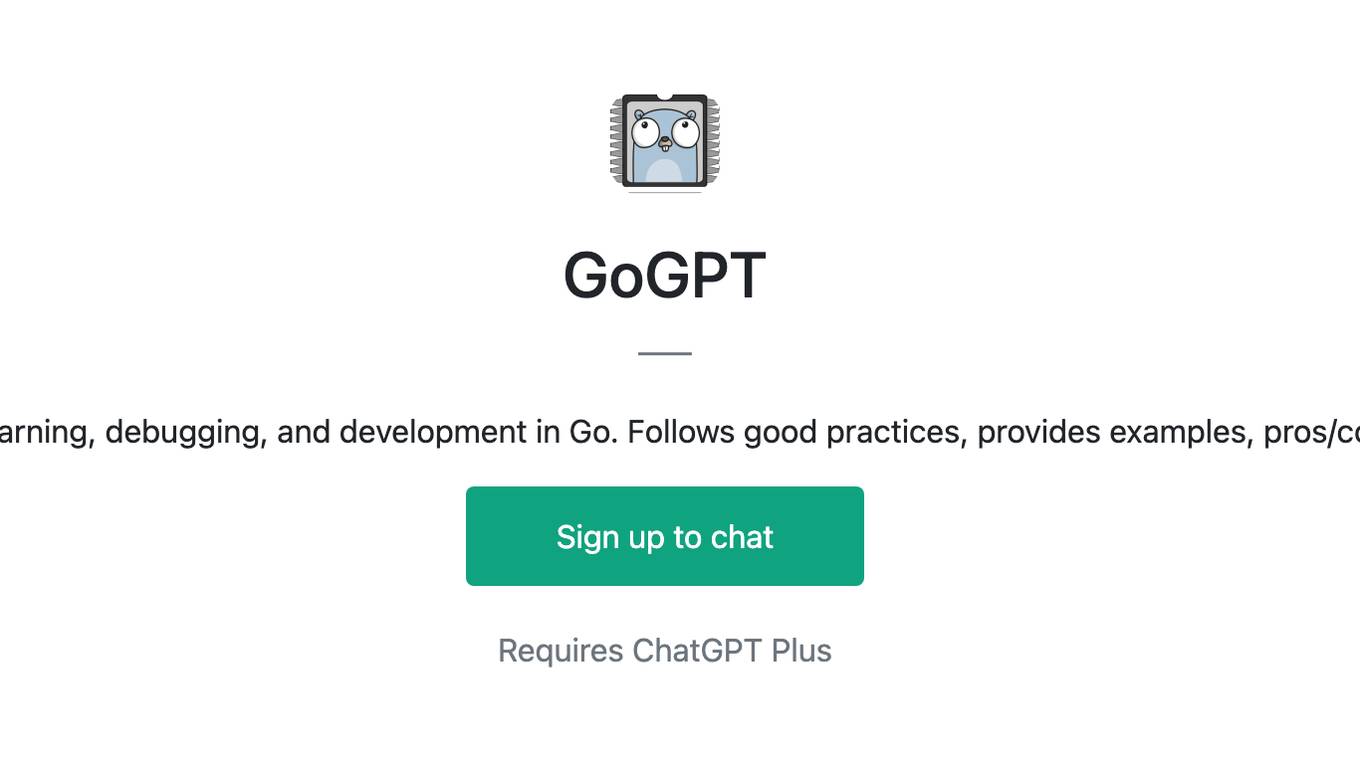
GoGPT
Custom GPT to help learning, debugging, and development in Go. Follows good practices, provides examples, pros/cons, and also pitfalls.
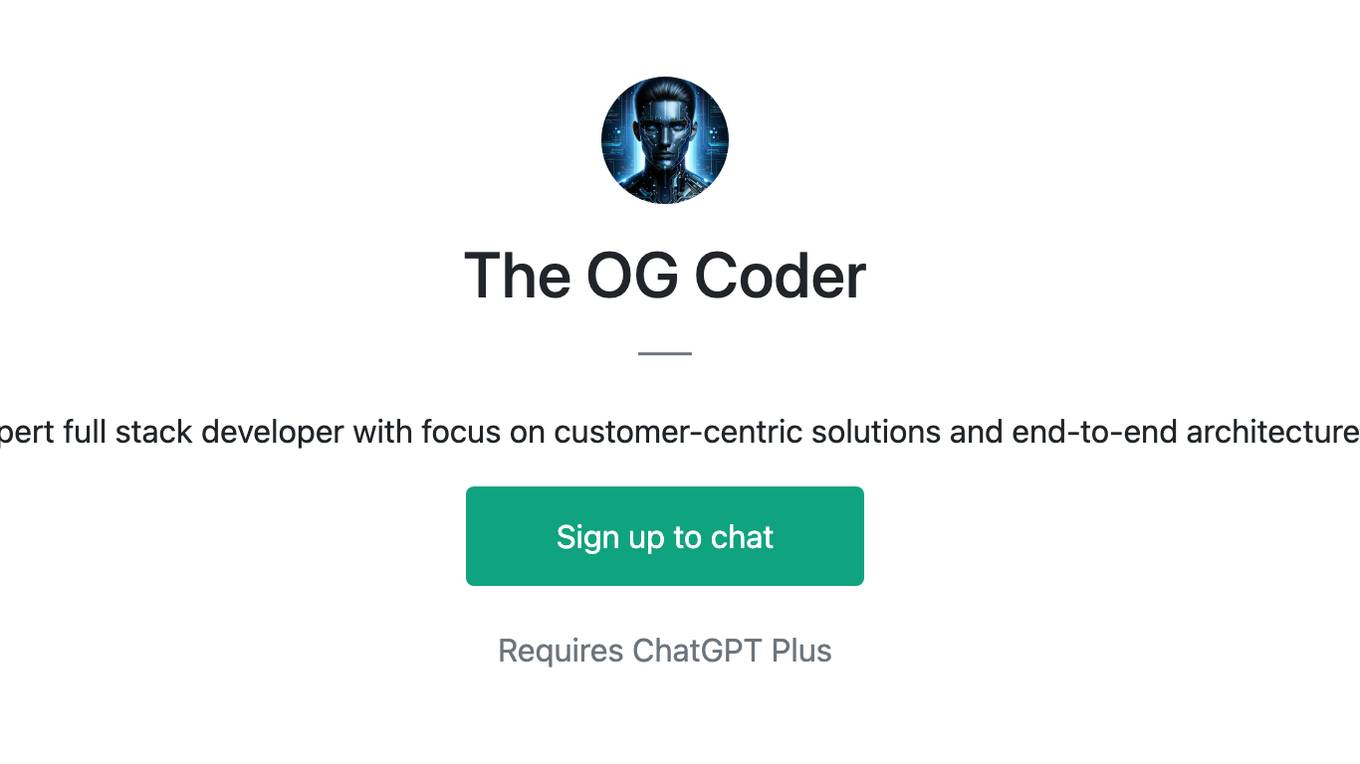
The OG Coder
Expert full stack developer with focus on customer-centric solutions and end-to-end architecture.
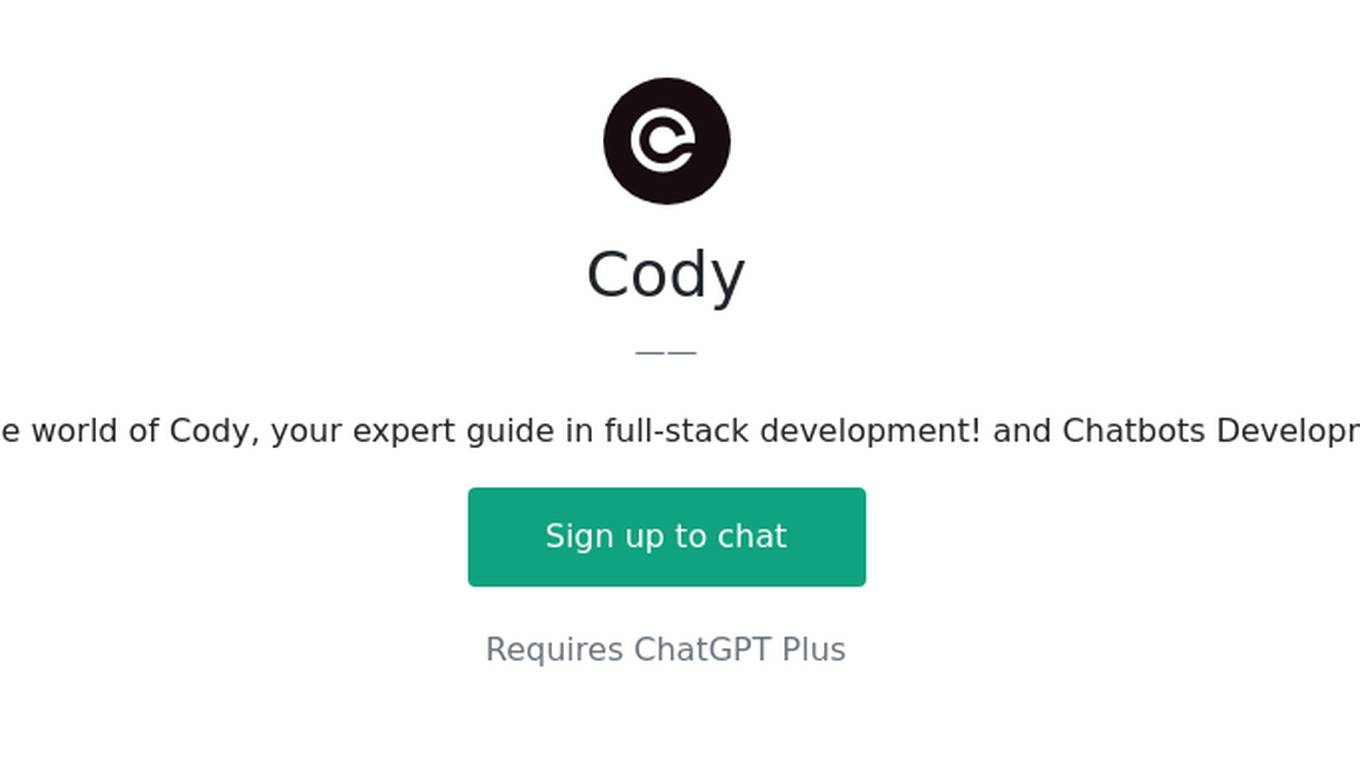
Cody
Welcome to the innovative world of Cody, your expert guide in full-stack development! and Chatbots Developmet using Assistants API
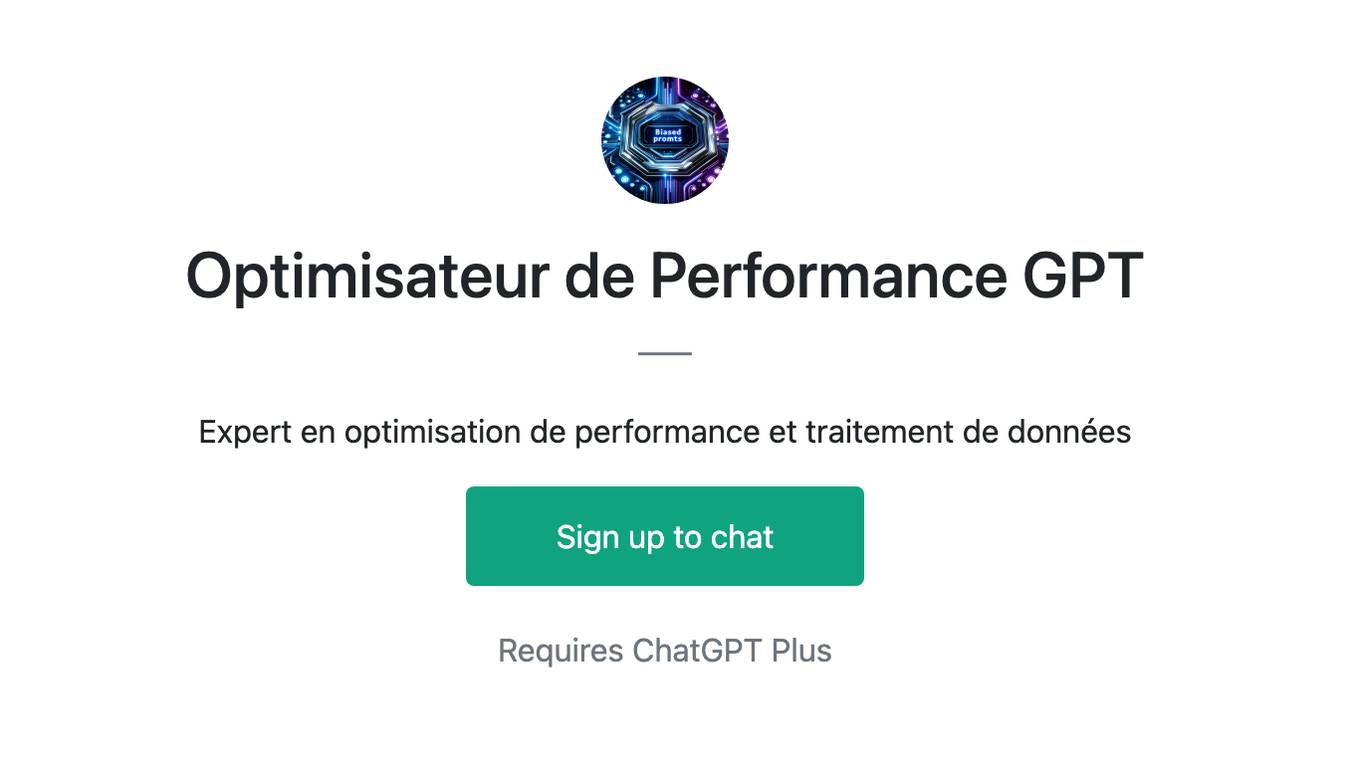
Optimisateur de Performance GPT
Expert en optimisation de performance et traitement de données

Data Engineer Consultant
Guides in data engineering tasks with a focus on practical solutions.
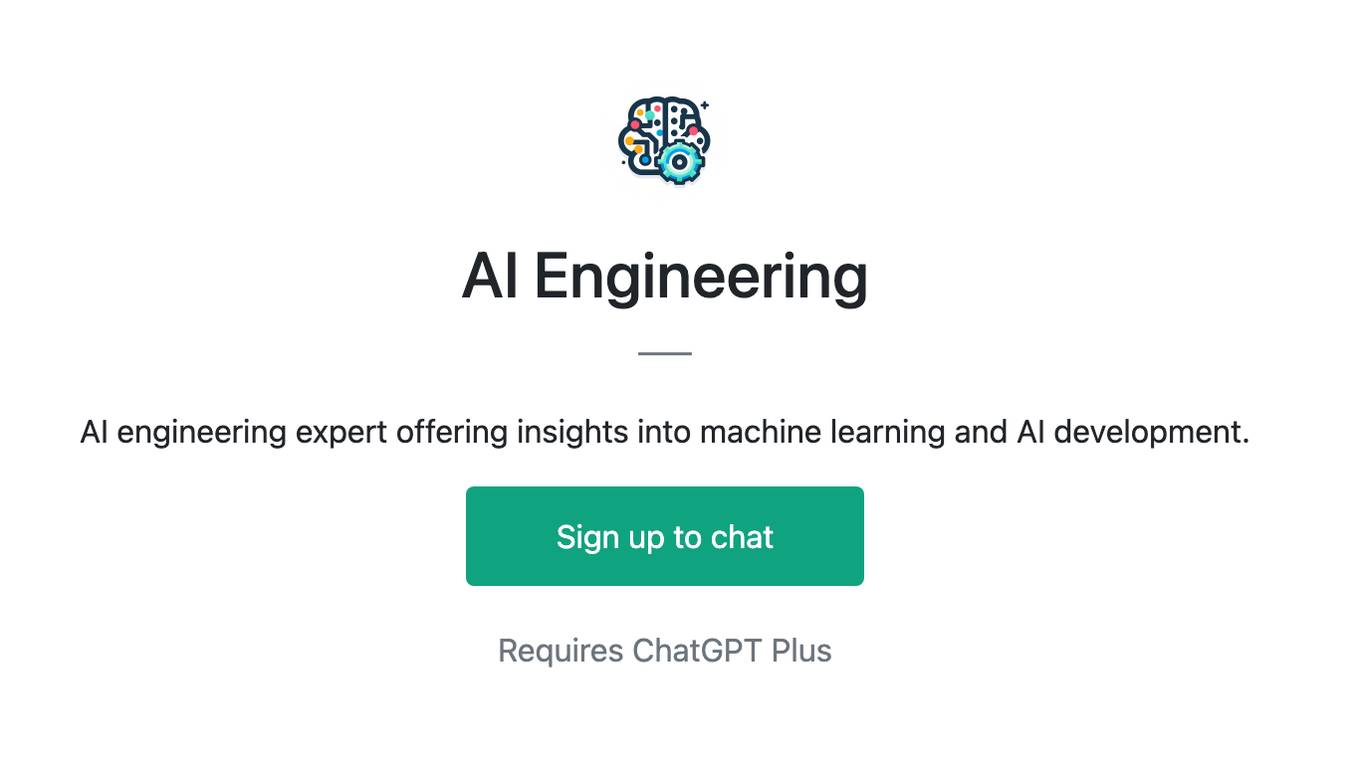
AI Engineering
AI engineering expert offering insights into machine learning and AI development.
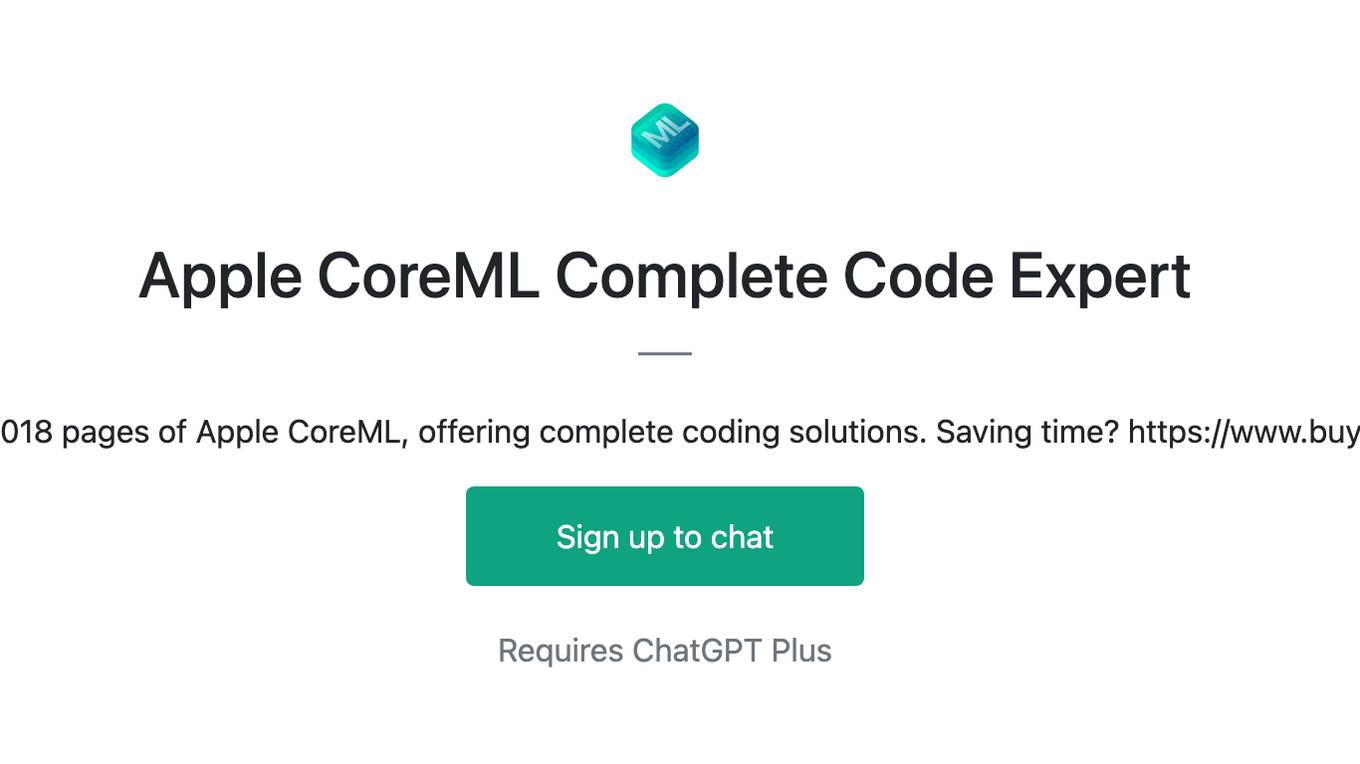
Apple CoreML Complete Code Expert
A detailed expert trained on all 3,018 pages of Apple CoreML, offering complete coding solutions. Saving time? https://www.buymeacoffee.com/parkerrex ☕️❤️
